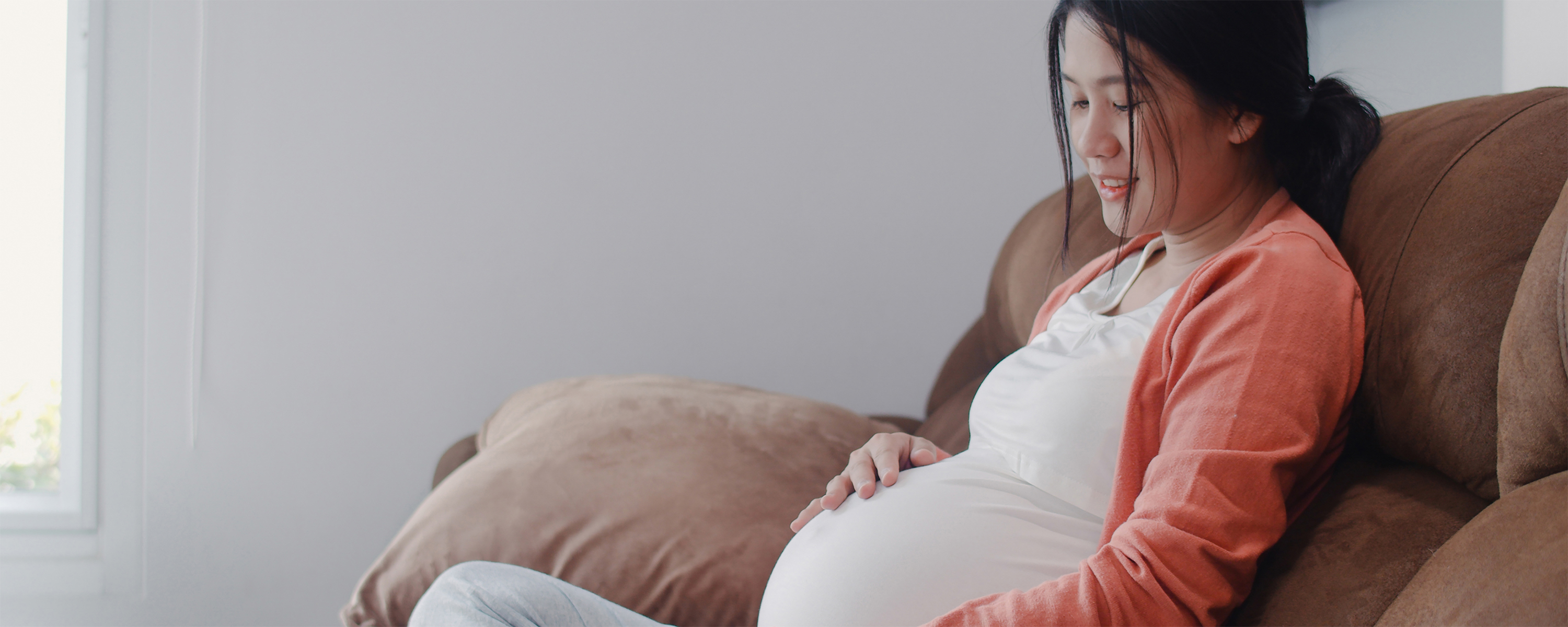
You're about to start an exciting journey that will change your life in ways you can't even begin to imagine. Nutrisaine community will be at your side every step of the way. We'll help you get answers to all your questions about the early stages and throughout the pregnancy. You'll feel excited and prepared for the journey to parenthood by considering skills, tasks, experiences and resources that can assist in becoming a parent.
How long does it take for a baby to be born? A normal pregnancy lasts 40 weeks from the first day of your last menstrual period (LMP) to the birth of the baby, the three stages of pregnancy is called trimesters: first trimester, second trimester, and third trimester.
Throughout its development, the embryo goes through a series of changes.
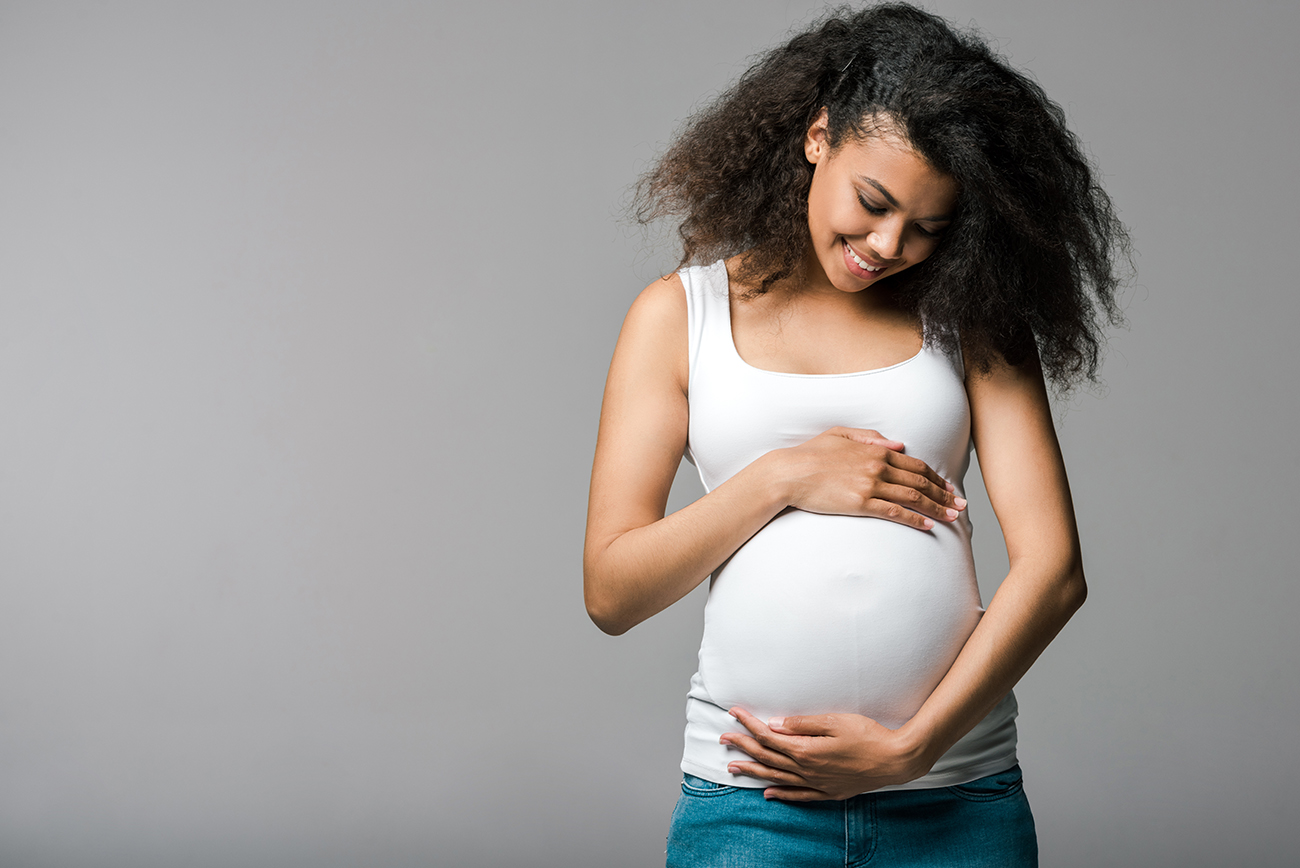
The first trimester is the most important to your baby's development. During this period, your baby's body structure and organ systems are developing. Most miscarriages and birth defects happens during this period.
In the first trimester, your body goes through a lot of changes. Nausea, fatigue, breast tenderness, and frequent urination are all common symptoms of these changes. Despite the fact that these are common pregnancy symptoms, each woman's experience is unique. For instance, while some people may feel more energized during this time, others may feel exhausted, emotional and distress.
The ovum (egg) of the woman is fertilized by the sperm of the man at the time of conception. In that moment, the gender and inherited characteristics are decided.
This first week is actually your menstrual period. Because your expected birth date is measured from the first day of your last period, this week counts as part of your 40-week pregnancy, even though your baby hasn’t been conceived yet.
Fertilizations of your egg by the sperm will occur by the end of this week.
After conception, the cell splits into two. Three days later, the cell has divided into 16 cells. After few more days, the cell which is now called a zygote has moved from the fallopian tube to the uterus. Seven days after conception, the zygote burrows itself into the thick uterine lining. The zygote is now called a blastocyst.
Inside your body, amazing developments are taking place. The tiny ball of cells dividing in your uterus is now about the size of a poppy seed. The next five weeks are very important to your baby’s development, as the basic foundations of their organs and limbs begin to take shape. Your placenta is also in the very early stages of its development, and your baby is surrounded by an amniotic sac.
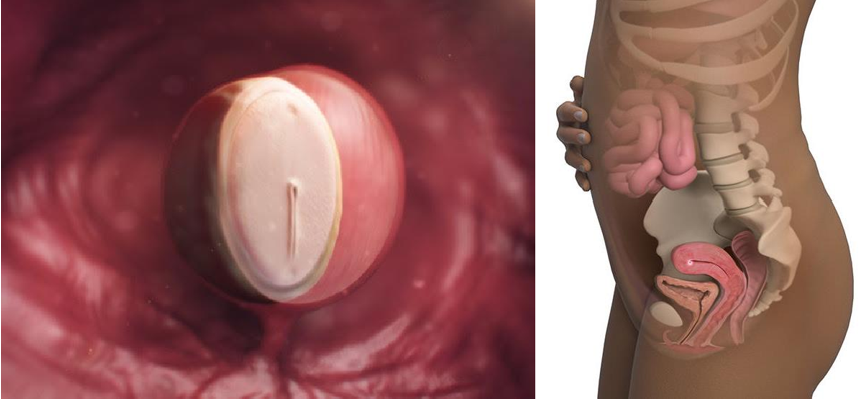
Even though you don’t appear to be pregnant yet, inside your womb, your baby is developing rapidly. The embryo has changed from a disc shape to a tadpole. Their heart is one of the first organs to form and begin operating. It will begin to beat around now.
The neural tube, that connects your baby's spinal cord to their brain, has formed and begins to close at each end. Other organs and tissues are also in development stages.
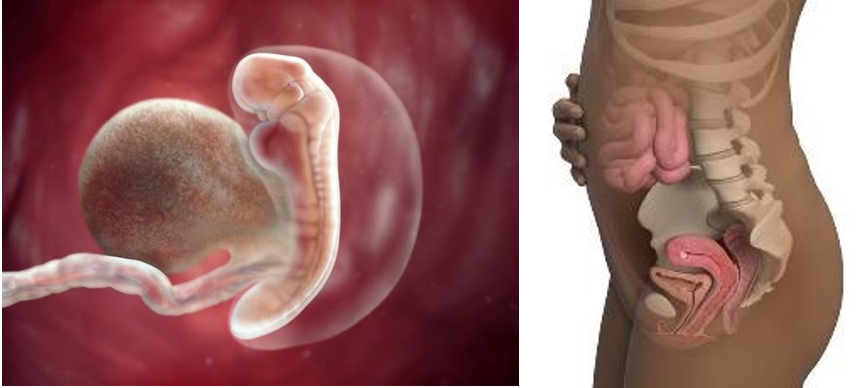
Your baby is roughly the size of a lentil at week six. Their facial features are already forming, despite their little size. They have dark spots where their eyes will develop, as well as small depressions where their ears and nostrils will develop.
Buds are swelling where their arms will grow, and those for their legs will follow soon after. The heart rate of your baby is around 100 beats per minute.
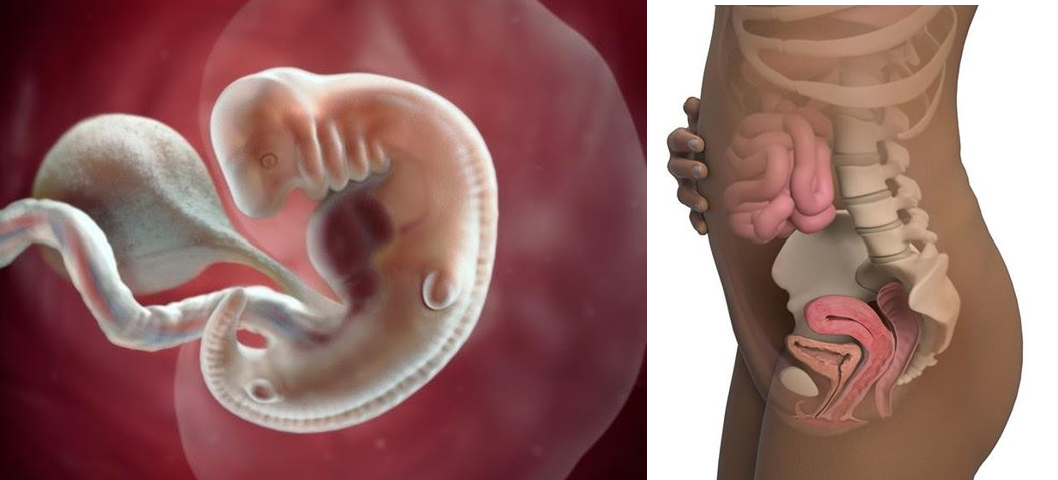
Your baby is still an embryo, and he or she has a small tail that will disappear in a few weeks. However, that is the only thing getting smaller. Every day, the rest of their body, especially their brain, develops.
At week 7, your baby's brain is becoming more complex, and his or her facial features are beginning to form. Nerves are spreading down to their paddle-shaped hands, and their arms are lengthening.
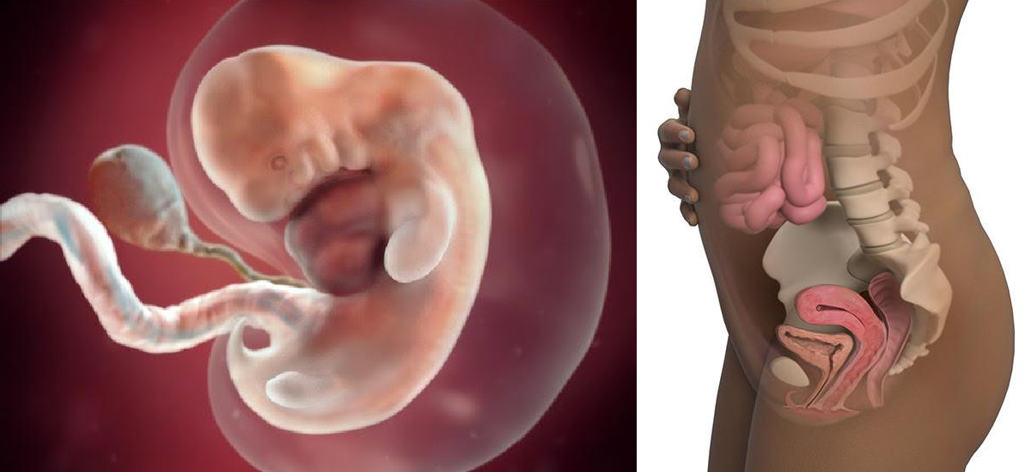
This is an important period in your baby’s development. Their brain is becoming more complex as nerves branch out and connect to one another.
At week 8, your baby's facial features are becoming more distinct, and ridges are forming where their fingers will be. Their embryonic tail is almost gone, and their tailbone will eventually take its place.
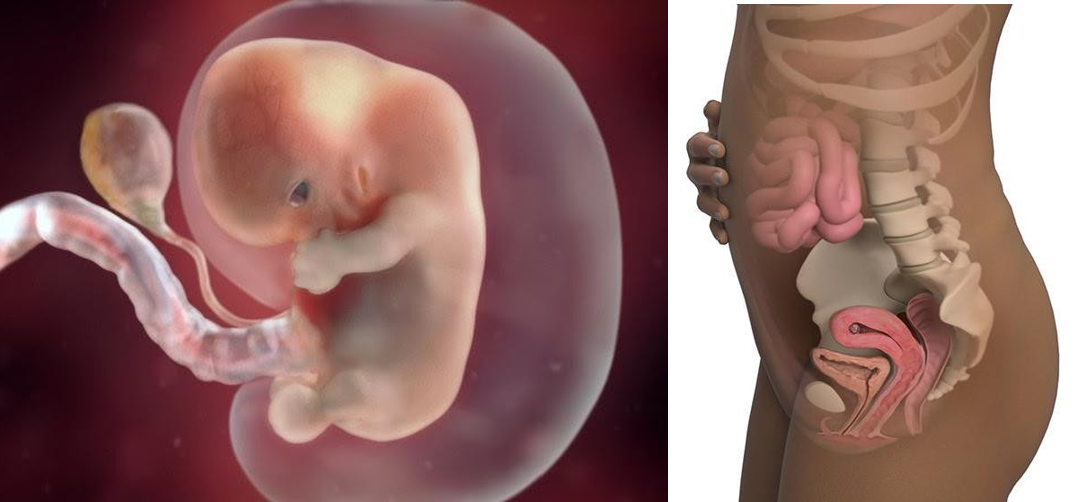
Your baby is only 2 grams. All of their body parts, including their arms, legs, eyes, genitals, and other organs, are now present, though not fully formed.
Your placenta is nearly complete, absorbing nutrients and oxygen from your bloodstream and delivering them to your baby. Their fingers and toes are becoming more distinct, and their arms and legs are lengthening.
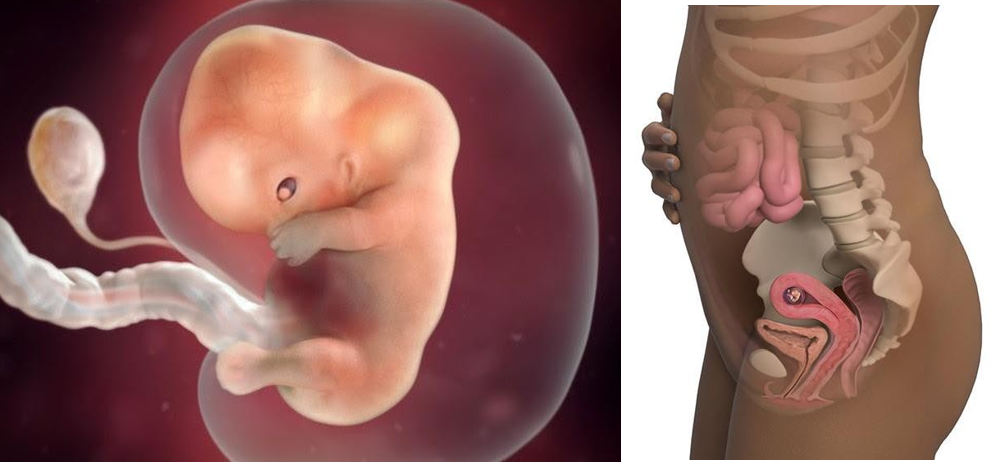
Your baby's heart has matured to the point where it beats 180 times per minute. Their hip joints allow them to rotate their legs, and their shoulders allow them to move their arms. They're kicking and moving their limbs instinctively to see how flexible they've become. Your baby’s head is more rounded and upright. They will open later in pregnancy. Now that all their organs are in place, their name changes from being an embryo to a fetus.
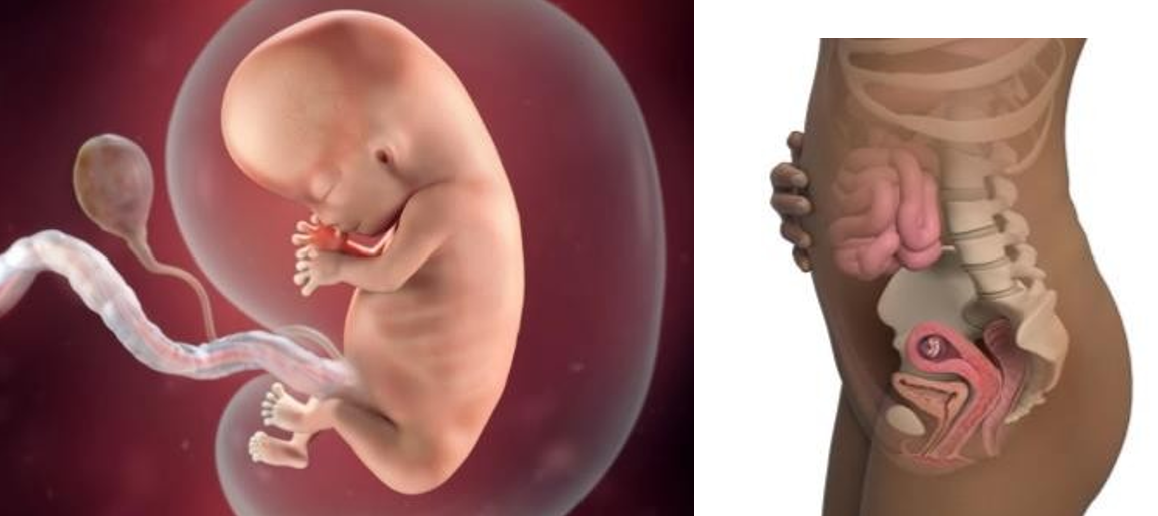
Although your baby is still smaller than your thumb, their critical development is nearly complete. They'll grow bigger and stronger over the next six months, preparing for life outside your womb. In your baby's mouth, tiny tooth buds are still developing. It's also possible that their fingers are developing tiny fingernails.
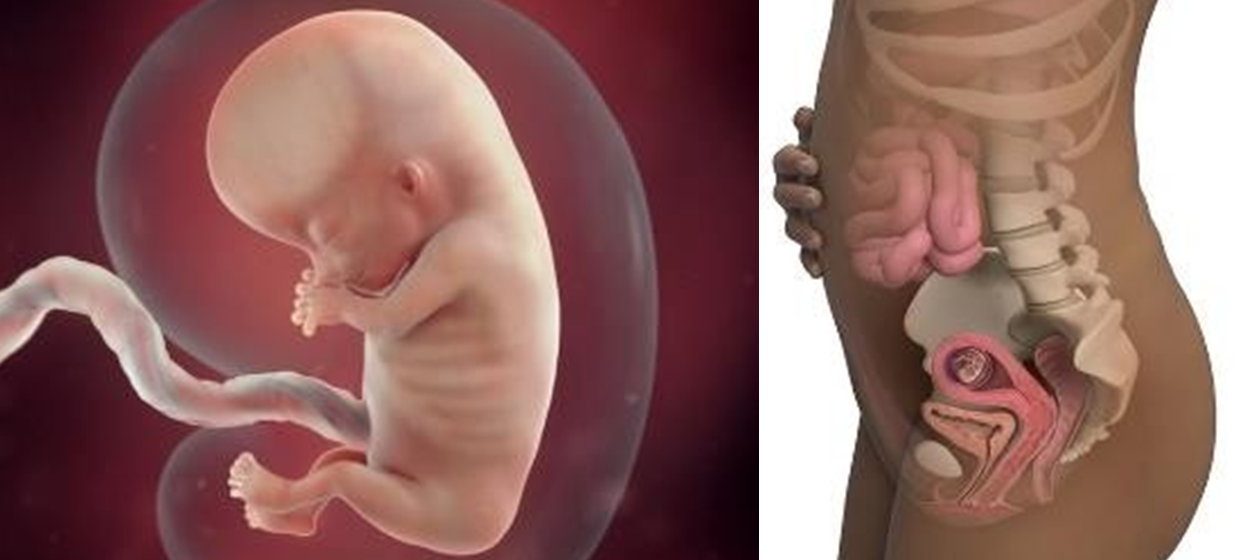
The features of your baby's face are becoming more human. On the bottom of their ears, small lobes are forming. Their eyes are starting to move closer together after starting on the sides of their heads. The skeleton of your baby is currently made of cartilage, a firm and rubbery tissue. The cartilage, however, will begin to harden into bone this week.

The second trimester of pregnancy is often referred to as the "golden period" because many of the unpleasant effects of early pregnancy disappear. During the second trimester, you're likely to experience feel less nauseated, better sleep patterns and an increased energy level. However, some of the new symptoms you may experience are back pain, abdominal pain, leg cramps, constipation and heartburn.
Somewhere between 16 weeks and 20 weeks, you may feel your baby's first movements.
Your baby's brain is becoming more complex, and their head is now a third of their length. They're developing tiny fingerprints on their fingers, and they might even start sucking their thumb this week.
If you're expecting a boy, his testicles should be fully developed. If you're having a girl, her ovaries will have formed by now. However, it is still too early to see these details on an ultrasound scan.
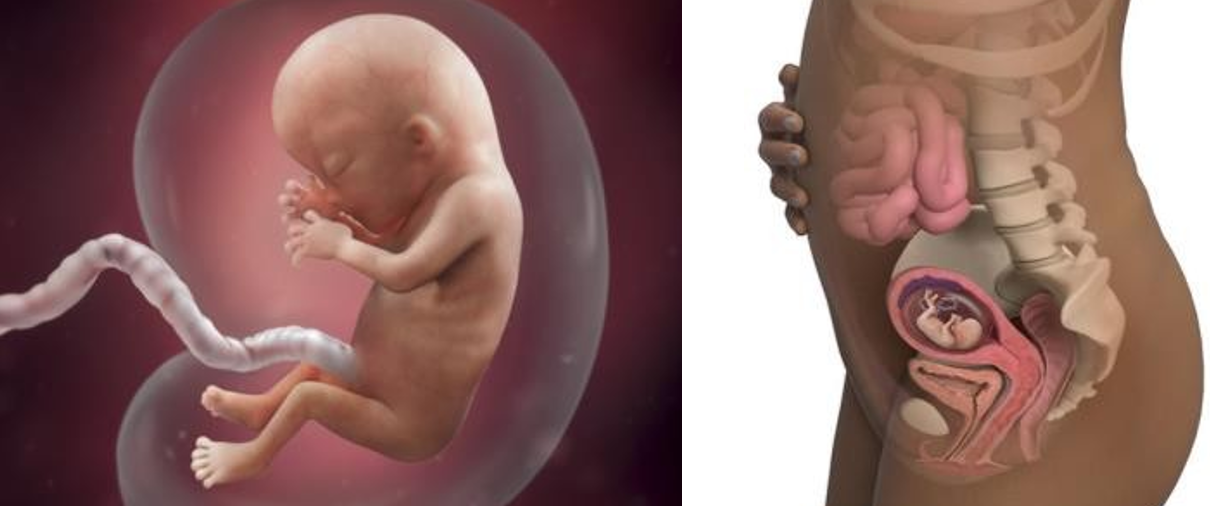
Fine, downy hair called lanugo is emerging on your baby's head and body. This hair usually fades away before birth but you may notice traces of it when they're born, especially if your baby is born prematurely.
The Muscles in your baby's face begin to twitch this week. They’re go from squints to frowns to grimaces. Under their closed eyelids, their eyes will begin to move.
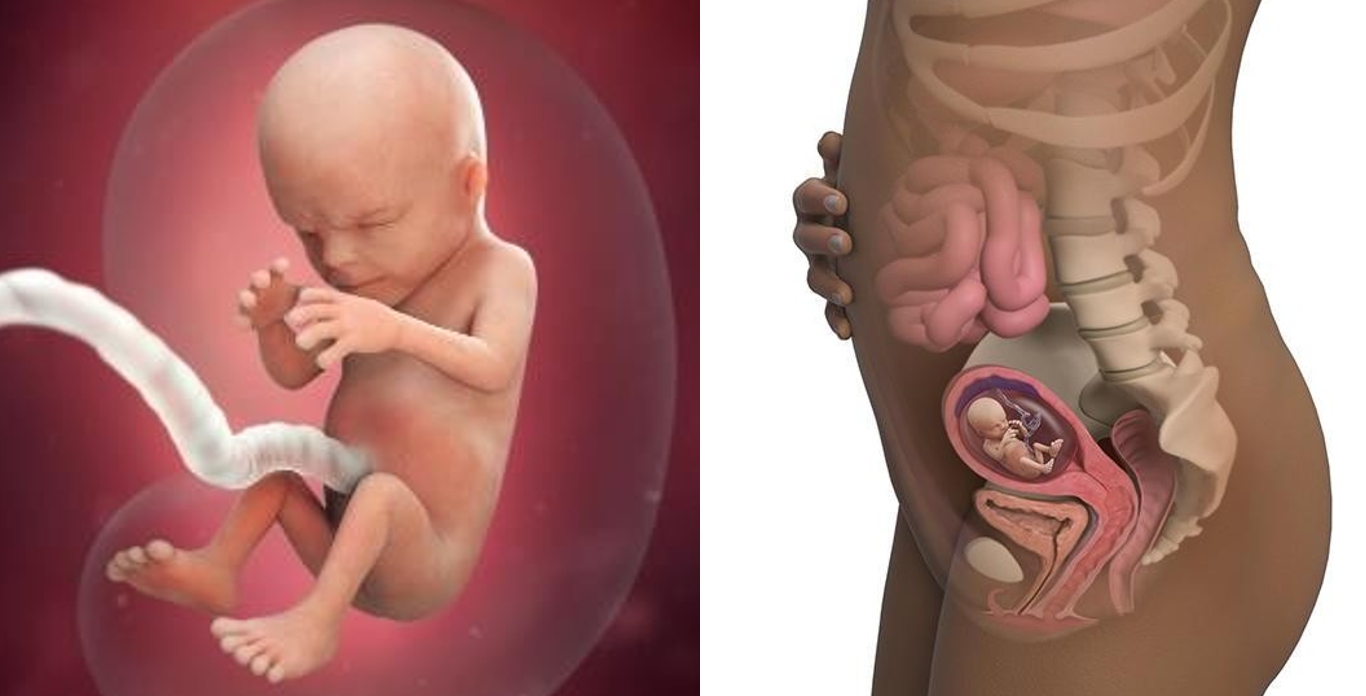
Your baby inhales and exhales the amniotic fluid that surrounds them, which helps their respiratory system to develop. Their eyes are still closed, but they're starting to respond to the light from outside your womb.
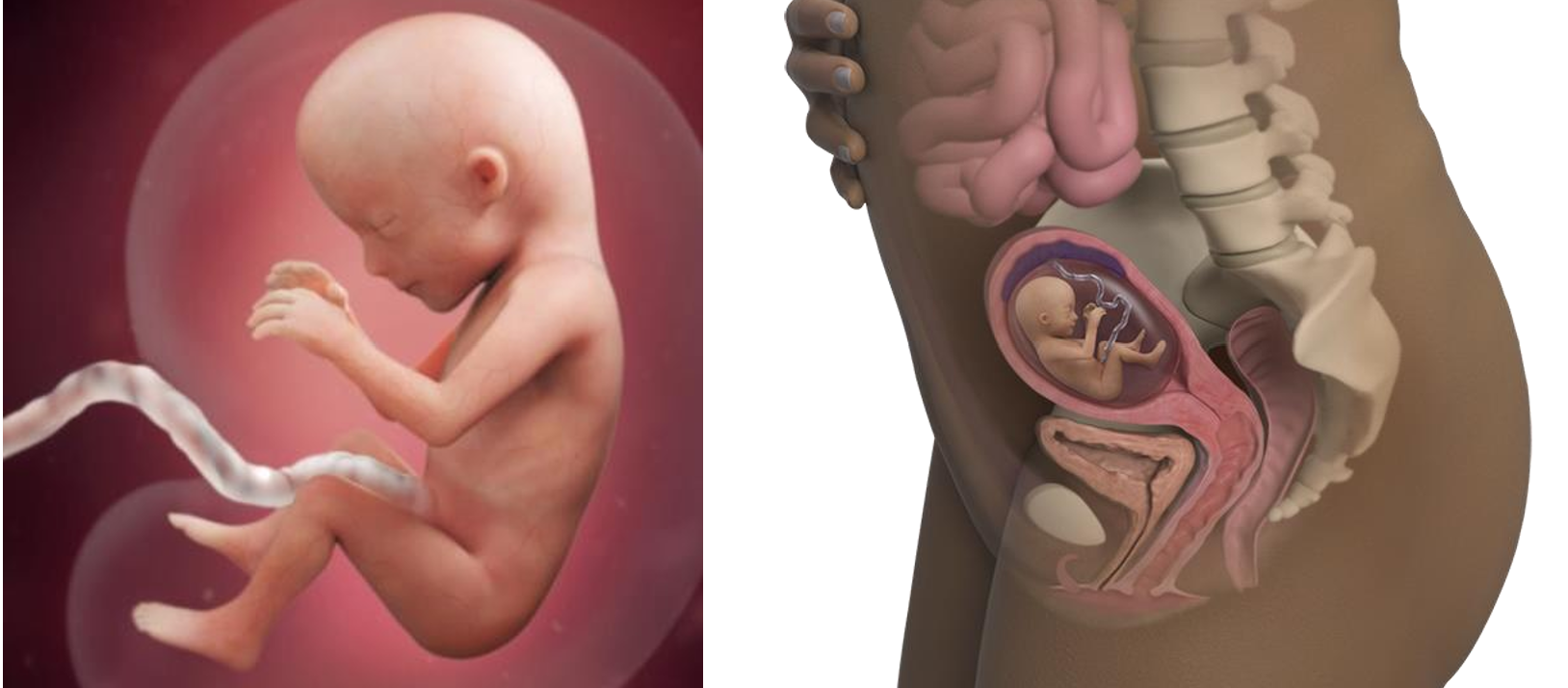
From this week, your baby will begin to hear noises in your body such as your heart beating and your tummy gurgling. They may be able to hear your voice, but it will sound muffled at this moment.
Your baby is about the size of an avocado this week. They'll experience a significant growth spurt in the coming weeks.
The muscles in your baby's neck are strengthening, and their head is sitting more upright on their body. They may be able to clasp their hands together in front of them as their coordination improves.
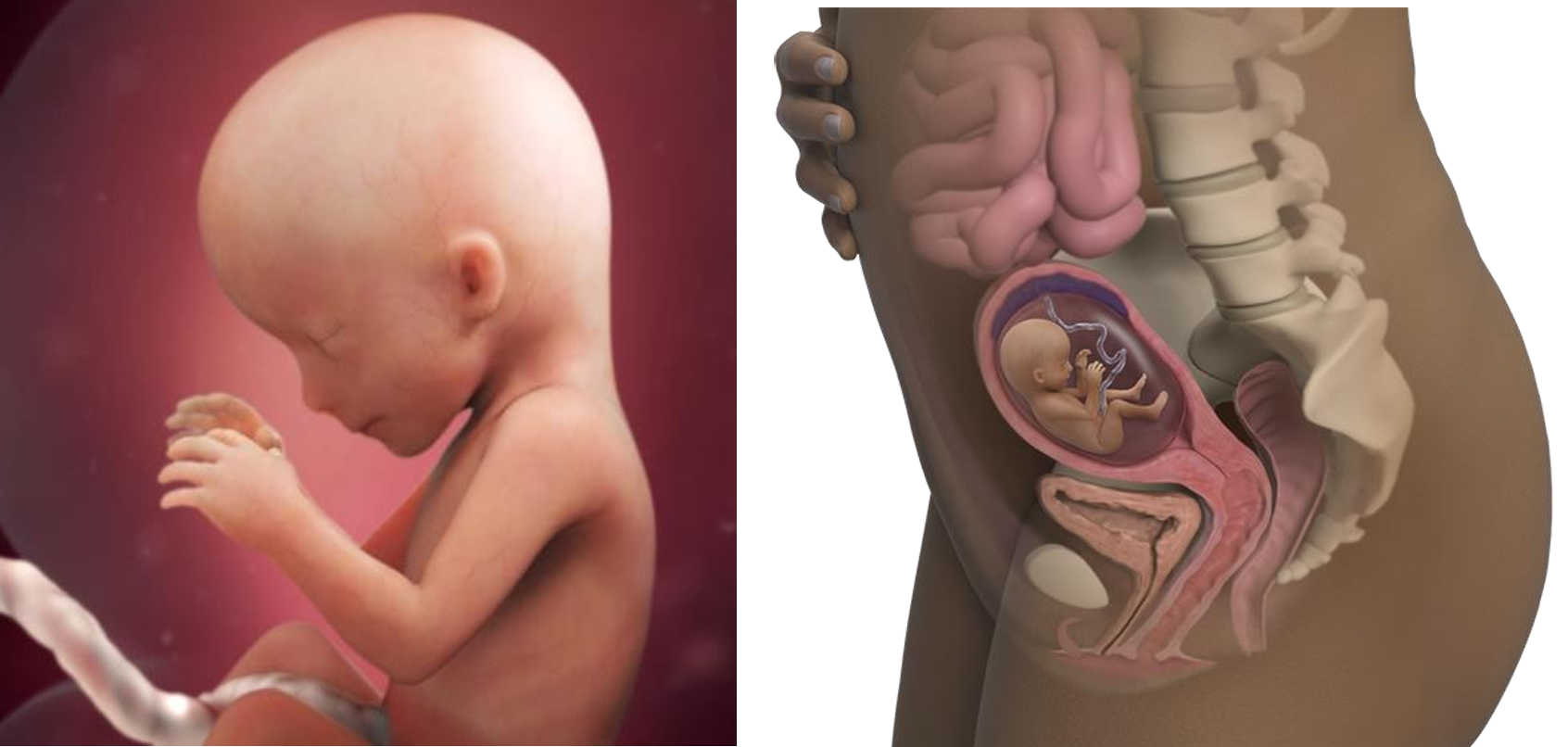
This week, your baby's nervous system is undergoing significant changes. Myelin, a fatty substance, begins to coat their spinal cord. This will help in the transmission of information from their nerves to their brain.
Your baby's hearing is improving. If you play music, they may move around in response. In the coming weeks, you might even notice them bouncing around.
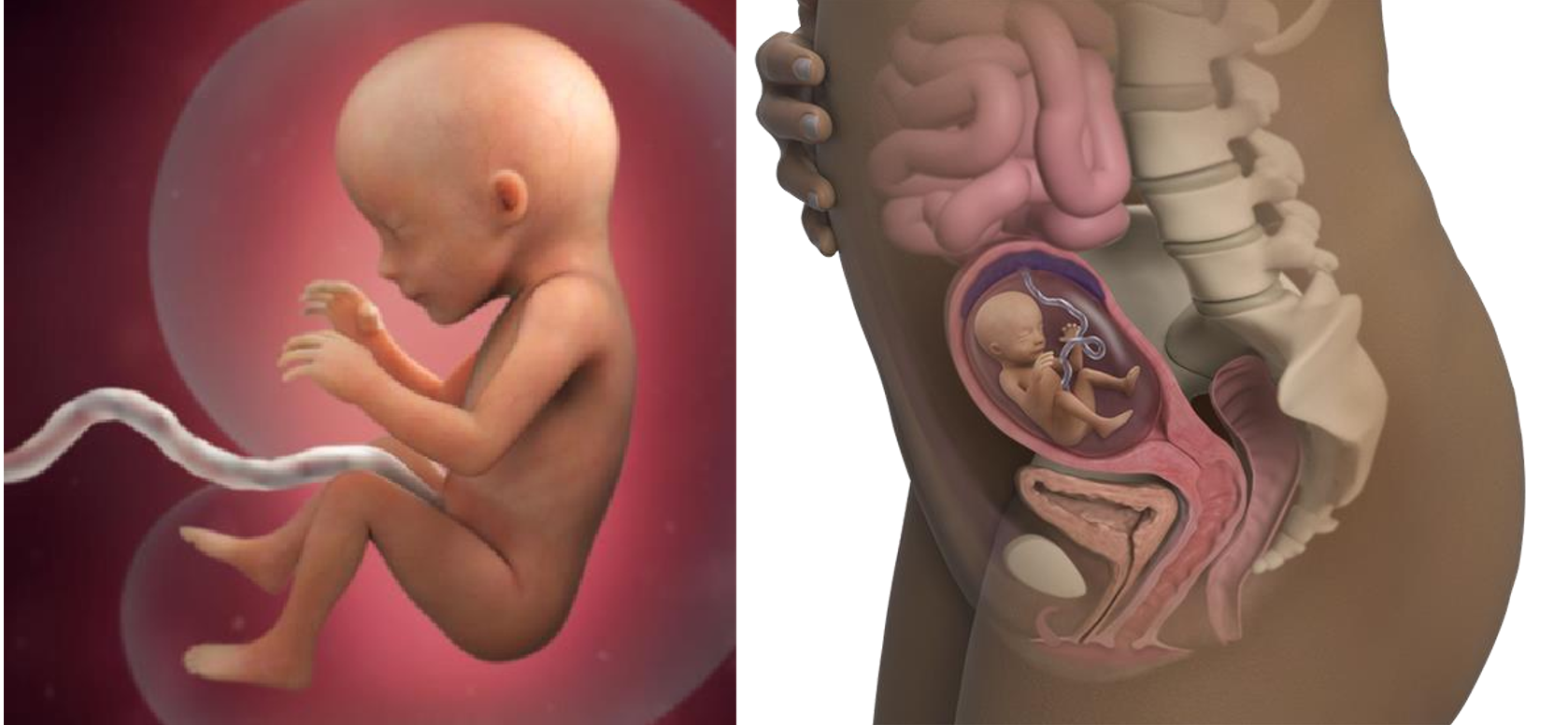
Your baby's ears will reach their final position on the sides of their head this week. Their small brows begin to form, and the muscles around their eyes twitch.
If you're having a girl, her vaginal, uterine, and fallopian tubes have all formed at this point. His testicles are moving down from his pelvis, and his penis is defined if you're having a boy.
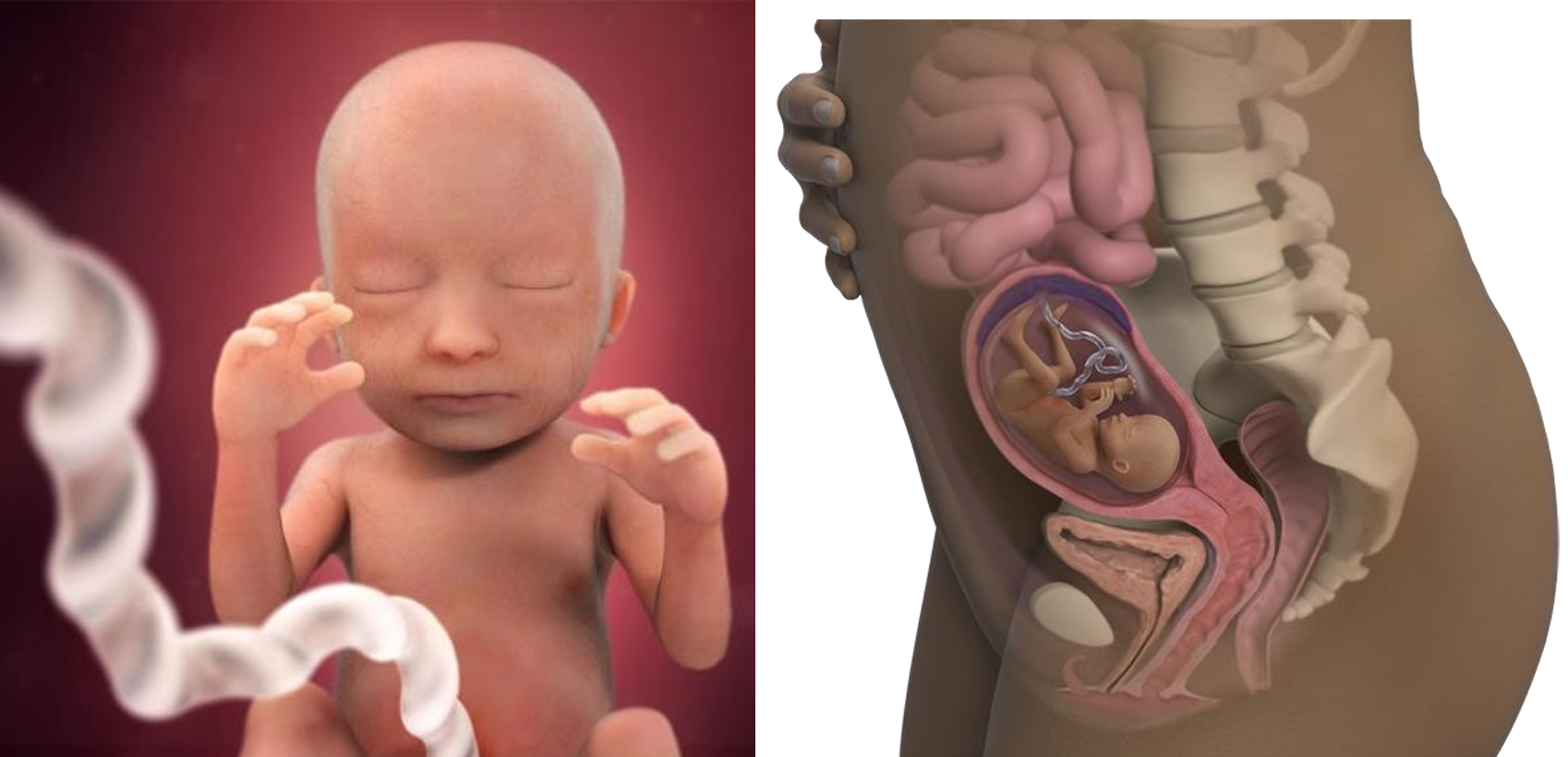
This is a critical period for your baby's sensory development. In specialized areas of their brain, nerve cells that will help them understand the world around them are growing.
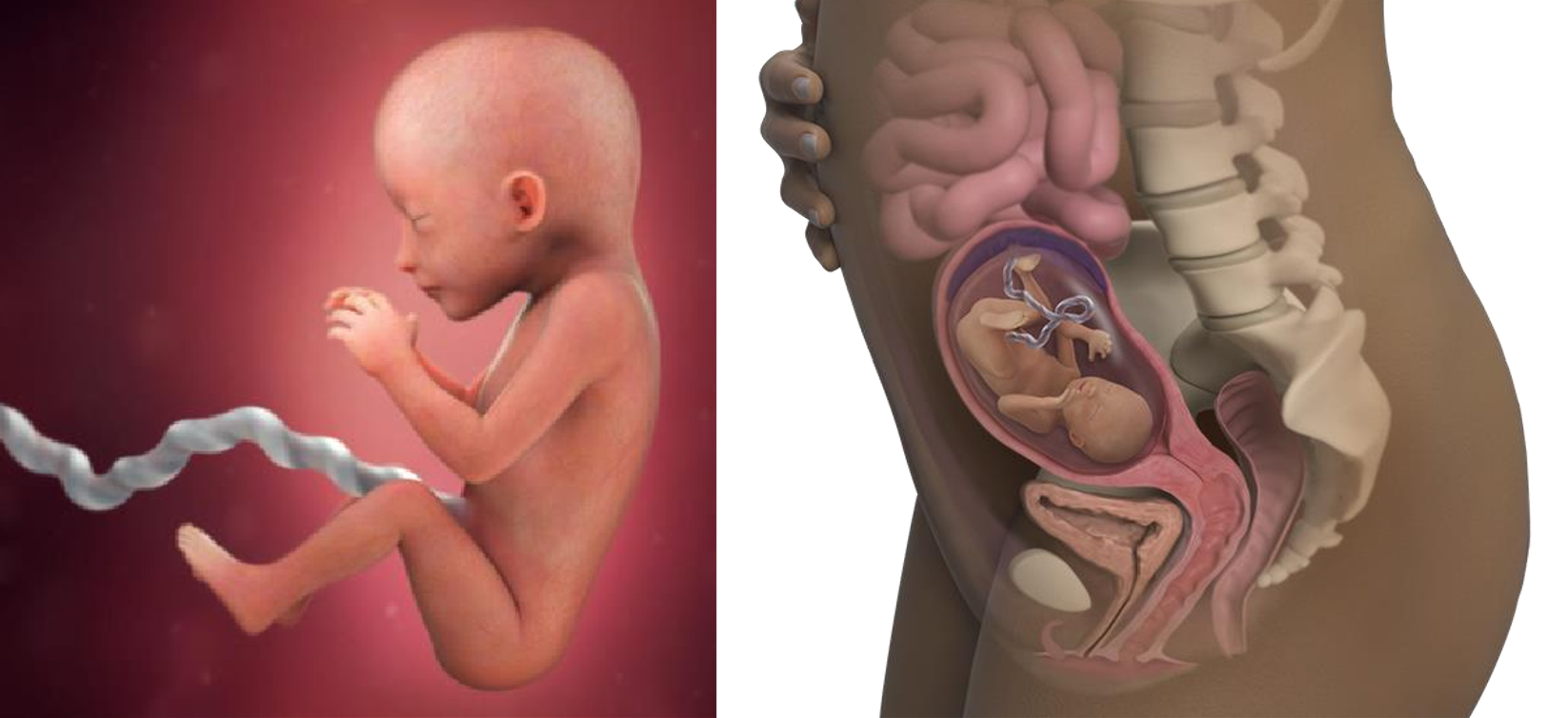
The limbs of your baby are now proportionate to the rest of their body. They're kicking and flexing their arms and legs, and you might see some of them during your anomaly scan.
Your baby is growing rapidly in your womb. They're about 25.6cm long from head to toe. Vernix caseosa, a whitish fatty substance, begins to coat your baby this week. It will protect their skin during their long immersion in amniotic fluid and, by acting as a lubricant, will make your baby's birth easier.
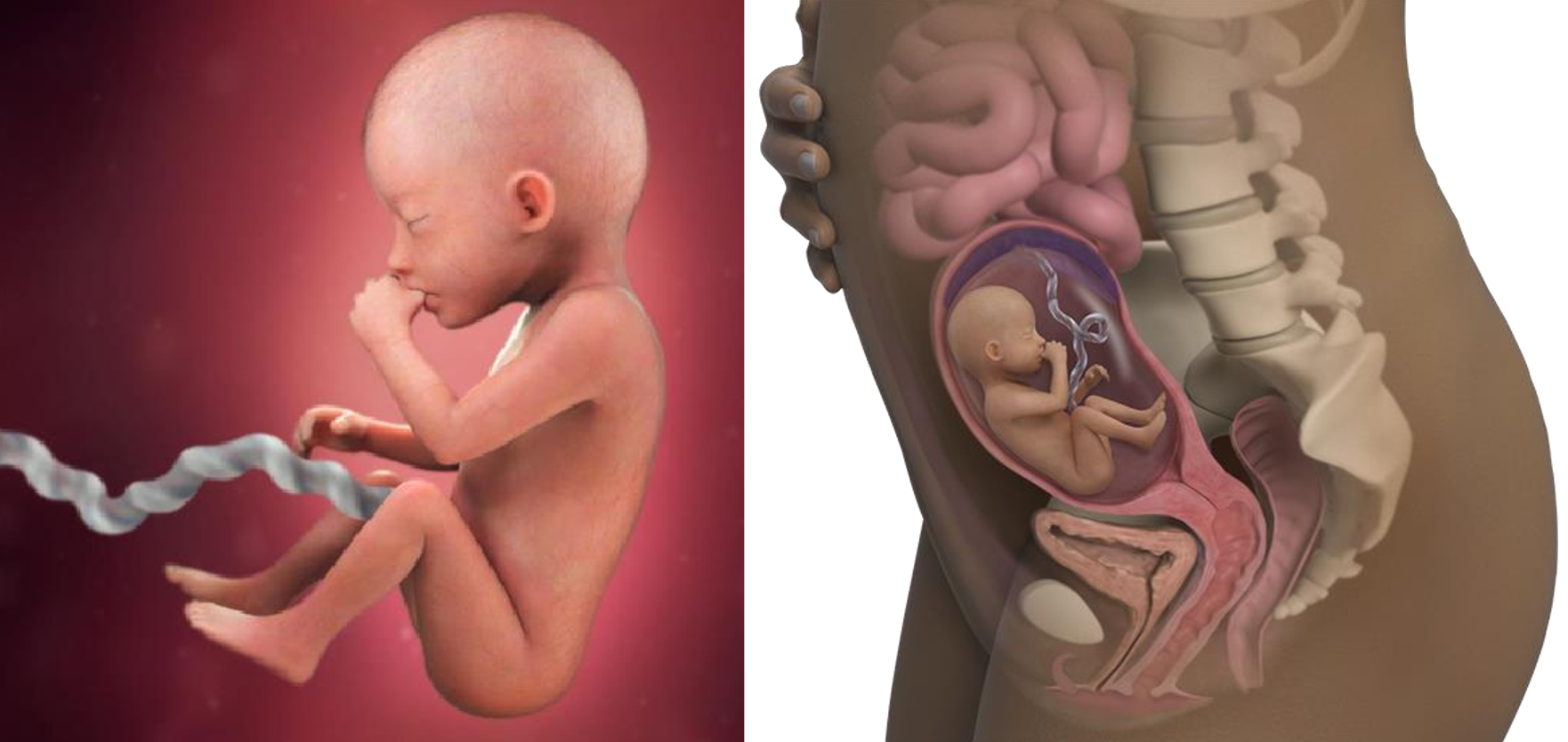
Under your baby's skin, small blood vessels called capillaries are forming, their brows are thickening, and their lips are distinct.
If you've begun to notice your baby's movements, you can expect even more in the coming weeks. As they begin to sleep in regular phases, you'll notice a pattern in their behavior.
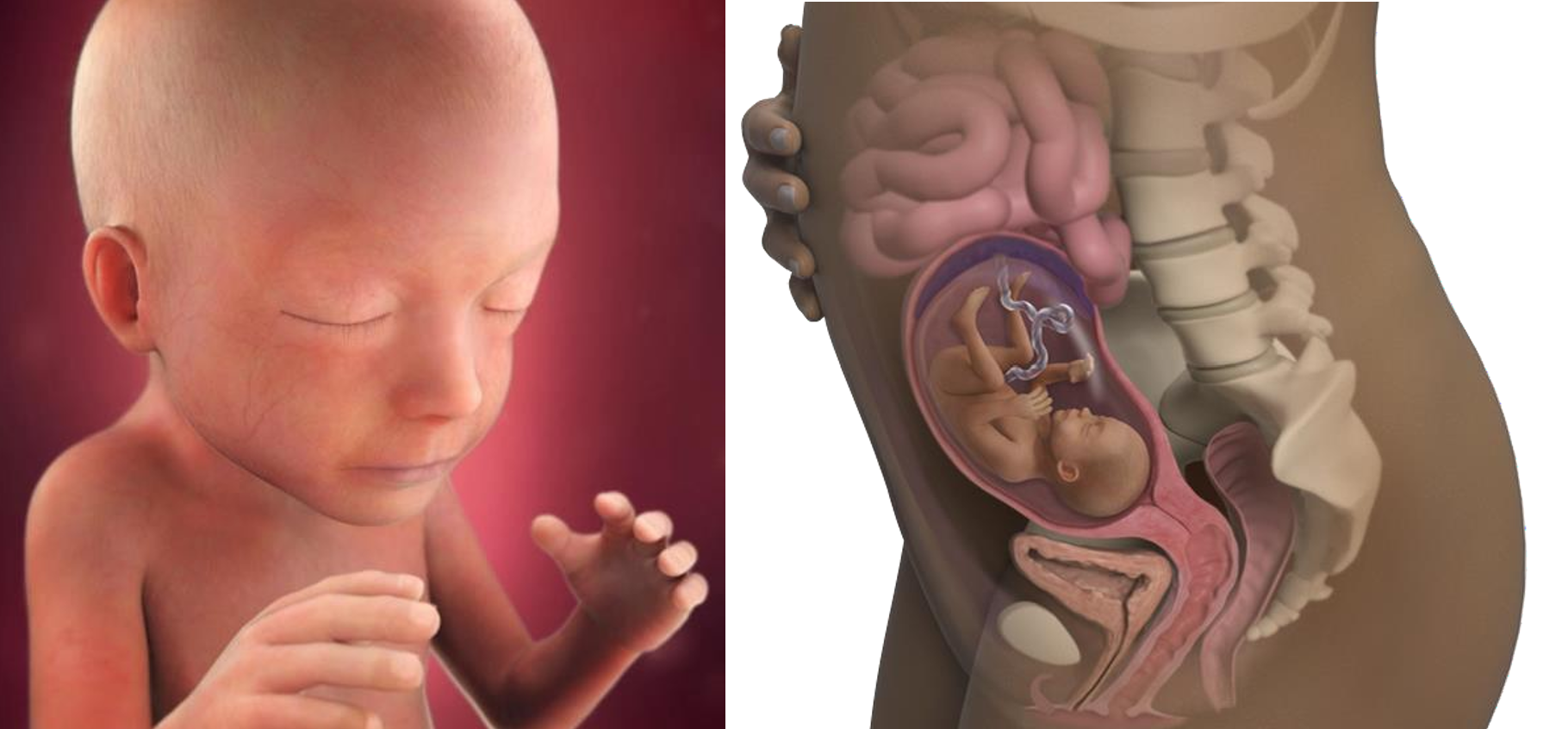
Your baby now has the appearance of a tiny newborn and weighs less than half a kilogram. They do, however, have a long way to go before they're ready to be born.
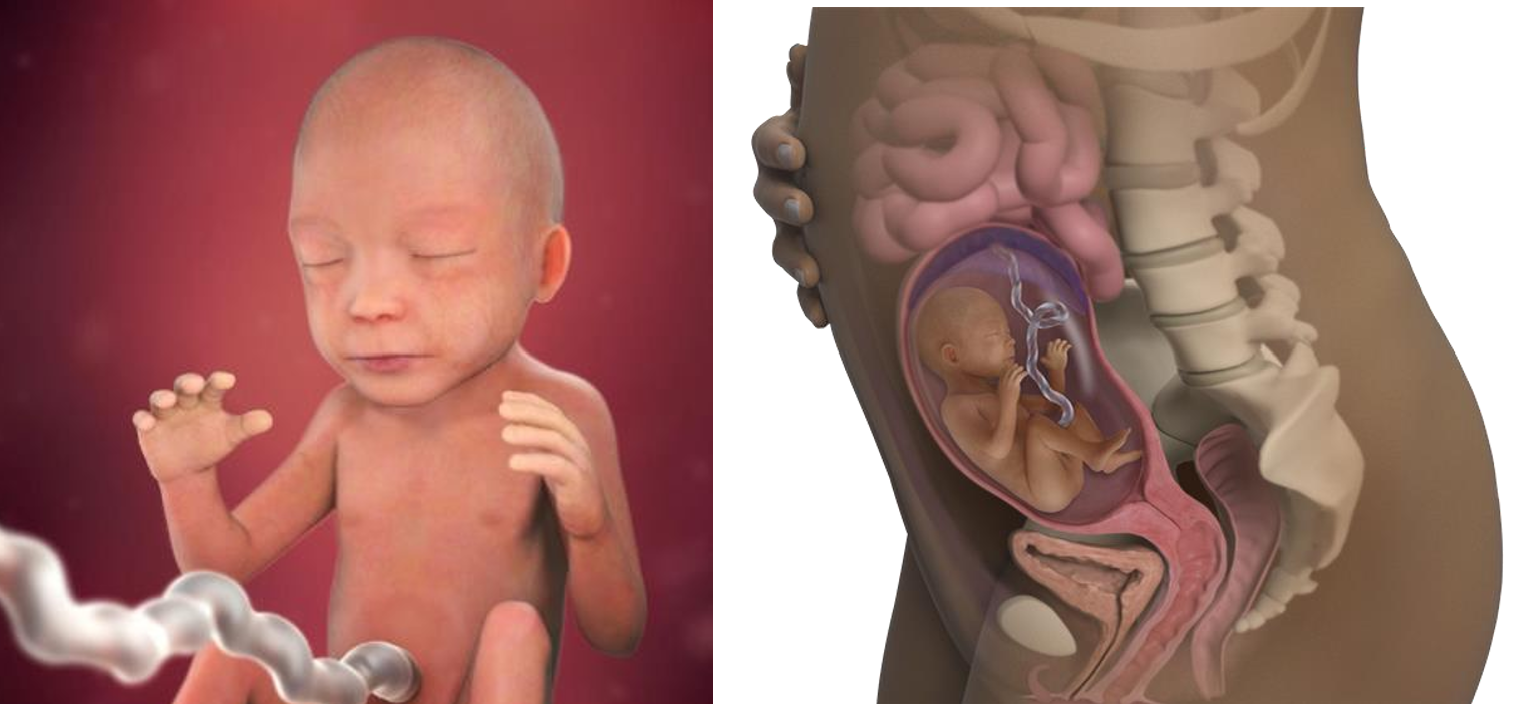
Your baby's first poop is also accumulating in their gut at this time. It's made up of a variety of substances that your baby consumes while in your womb, such as amniotic fluid and shed skin cells! They'll swallow it and store it as meconium, a black or dark green sticky substance in their intestines.
The liver and spleen no longer produce red blood cells, so your baby's bone marrow has taken over. Their hearts are beating faster and pumping more blood throughout their bodies.
Around this time, your baby begins to pick up on nearby sounds more clearly. They can also hear sounds from a distance, such as a door slamming.
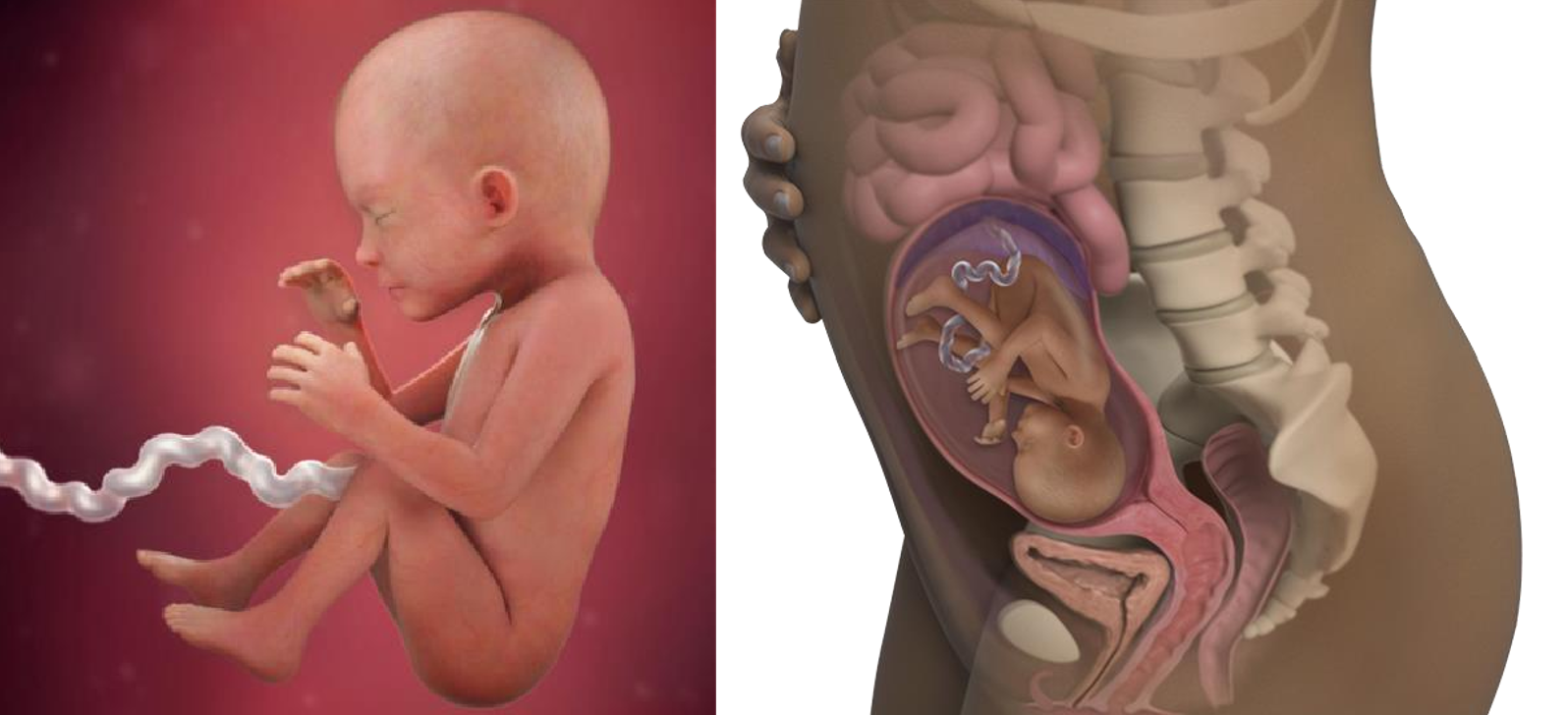
You might catch a glimpse of your baby making some unusual facial expressions if you could see inside your womb right now! They'll be busy using their facial muscles to raise and lower their brows as their facial muscles grow and develop.
Your baby has reached the "threshold of viability," as doctors call it. This means that if they were born at 24 weeks, their lungs may have developed sufficiently to give them a chance of survival if they were given intensive neonatal care.
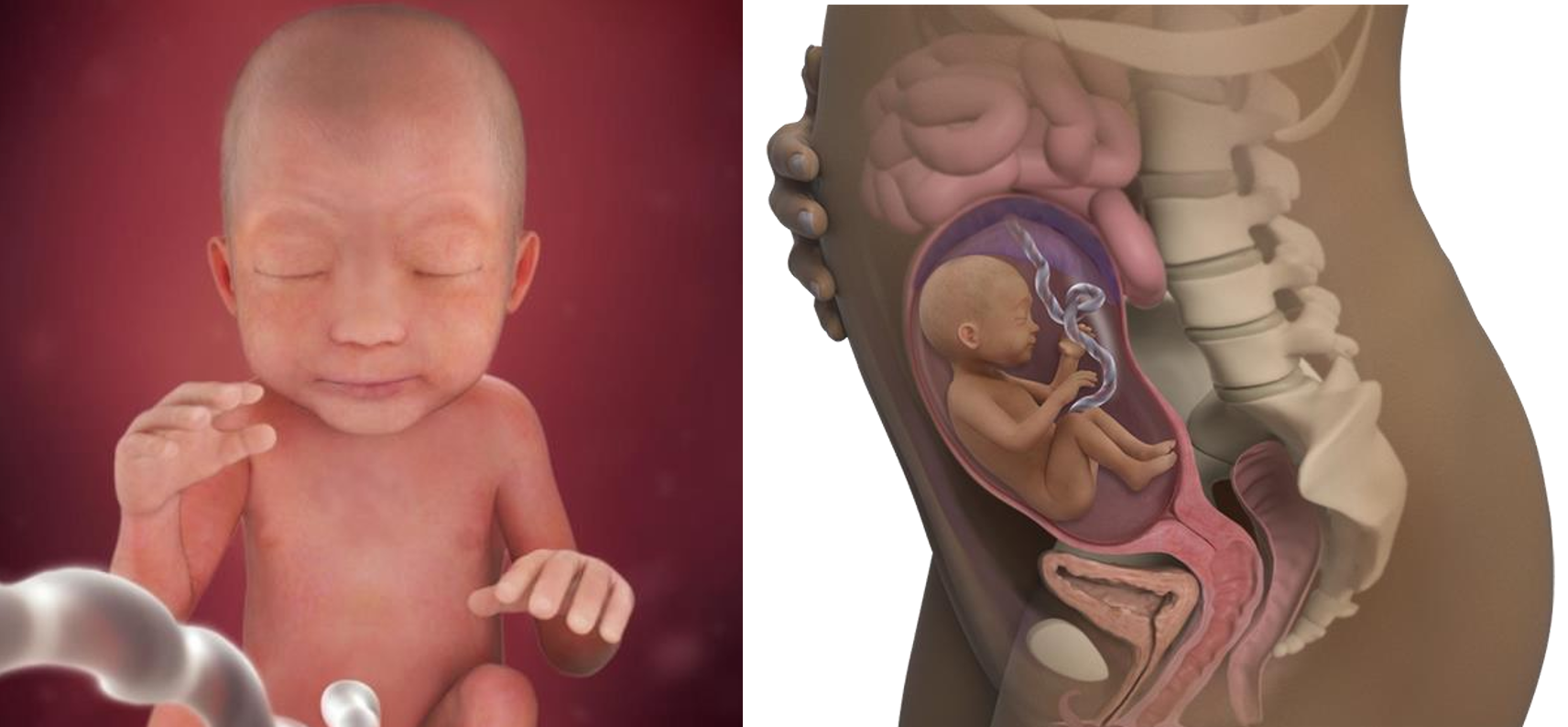
Your baby is gaining weight and smoothing out their wrinkled skin. On their heads, hair is growing, though it may fall out soon after birth.
If you shine a light on your belly, your baby's head may turn in response. This is due to the fact that their eyes have matured to the point where they can detect light. Their hearing is also more sensitive, so a loud noise may cause them to jump.
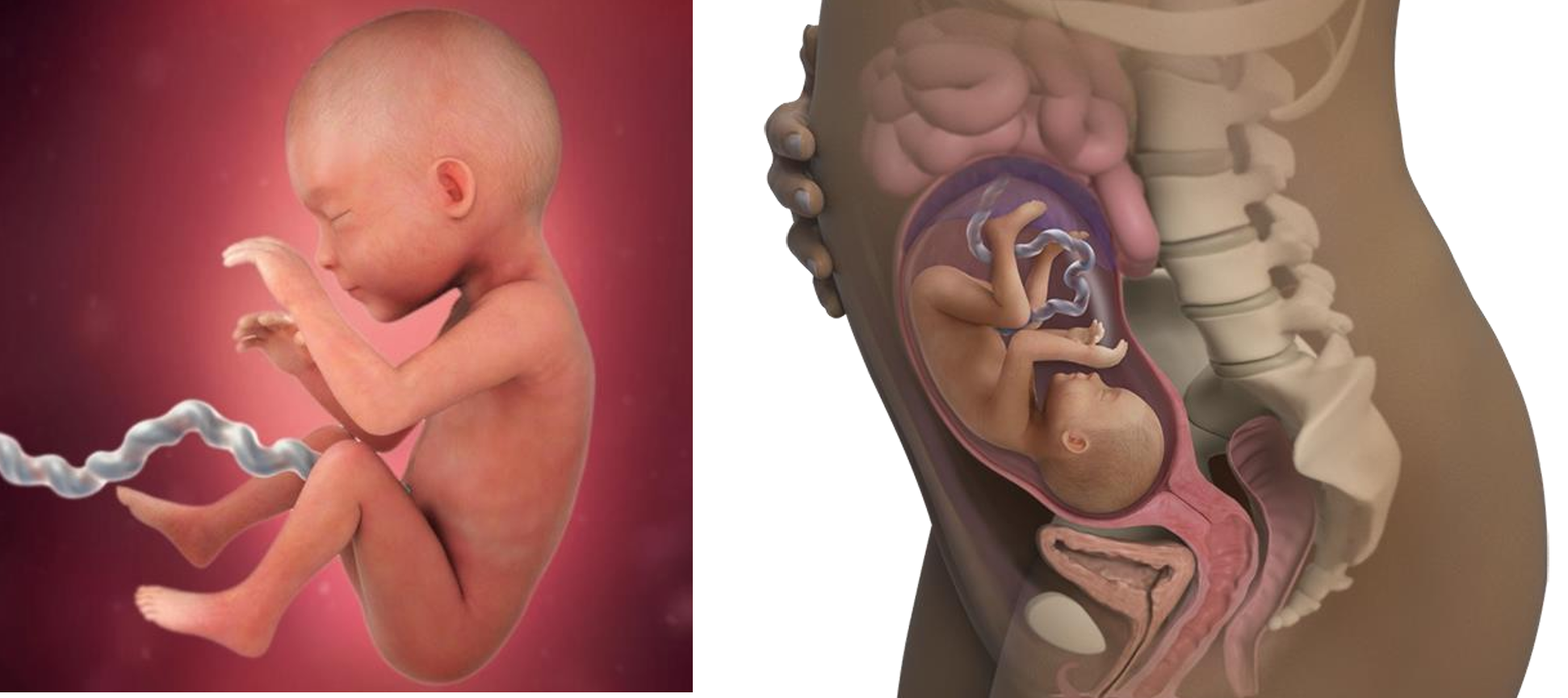
This week, your baby has a lot going on. Their lungs are developing, their airways are branching out, and tiny air sacs are growing at the end of each one. Once your baby is born, these sacs will absorb oxygen into the bloodstream.
Taste buds in your baby's mouth have come to the end of their development. Their adult teeth begin to emerge from their gums as tiny tooth buds, and their lips become more sensitive.
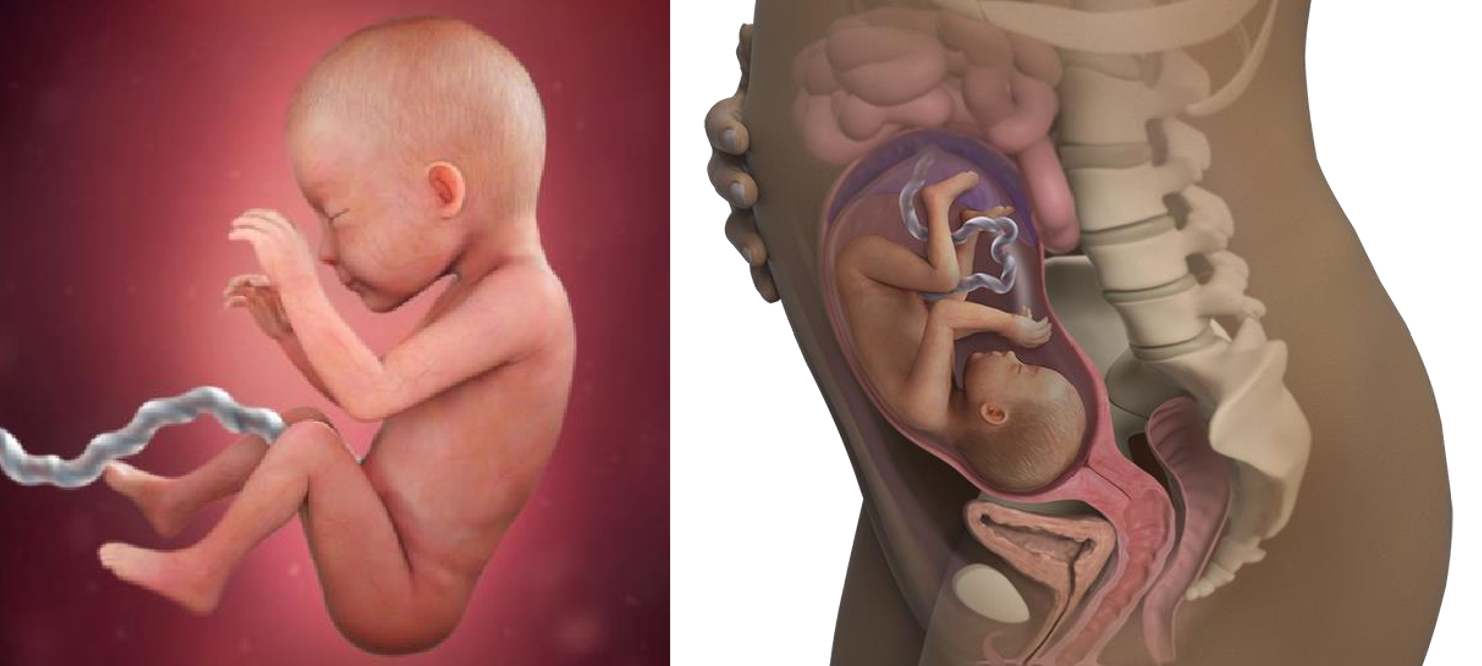
Your third trimester begins at the end of this week. Your baby is now able to open and close their eyes, as well as sleep and wake at regular intervals. They might even begin to dream right now.
Surfactant, a substance that coats the inside of your baby's lungs, is starting to build up. The surfactant prevents the airways and air sacs from sticking together, which is a significant development. This will allow the sacs to pump up with air once they’re born.
You've made it to the end of your pregnancy and are probably both excited and nervous about your baby's arrival. Shortness of breath, hemorrhoids, urinary incontinence, varicose veins, and sleeping problems are some of the physical symptoms you may experience during this time. The expansion of your uterus, which grows from about 2 ounces before pregnancy to 2.5 pounds at the time of birth, causes many of these symptoms.
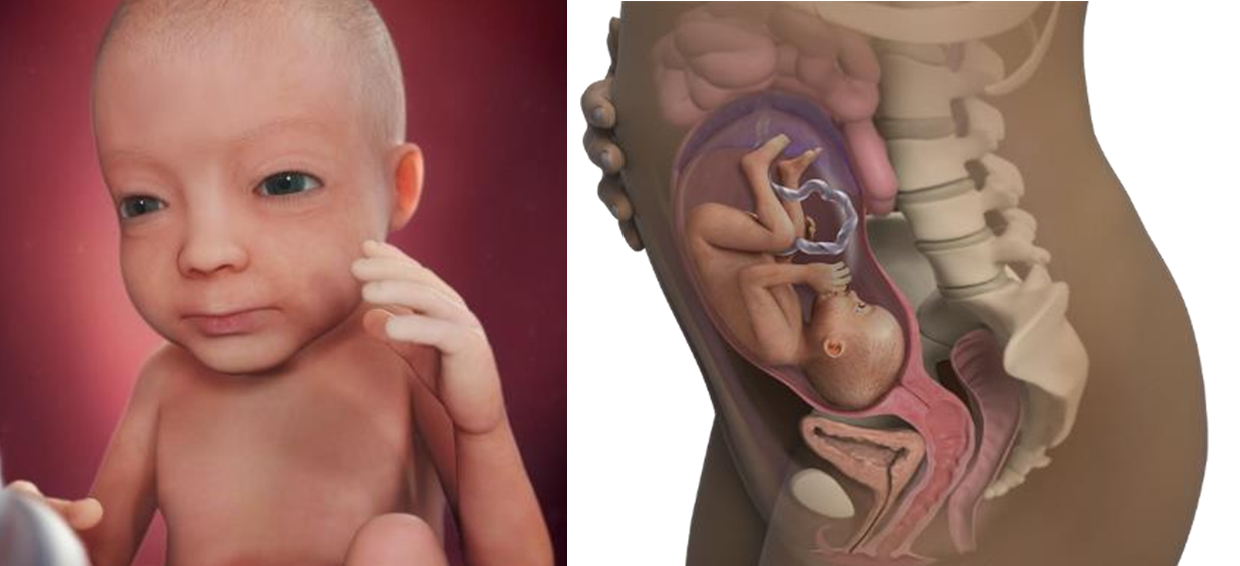
The third trimester has begun! Your baby is growing in size and strength, but there is still a lot of development left for them to do between now and the end of the pregnancy.
Your baby's facial features are well-developed, with tiny eyelashes. You may notice them making small jerking and twitching movements inside you; this could be hiccups as their digestive system matures.
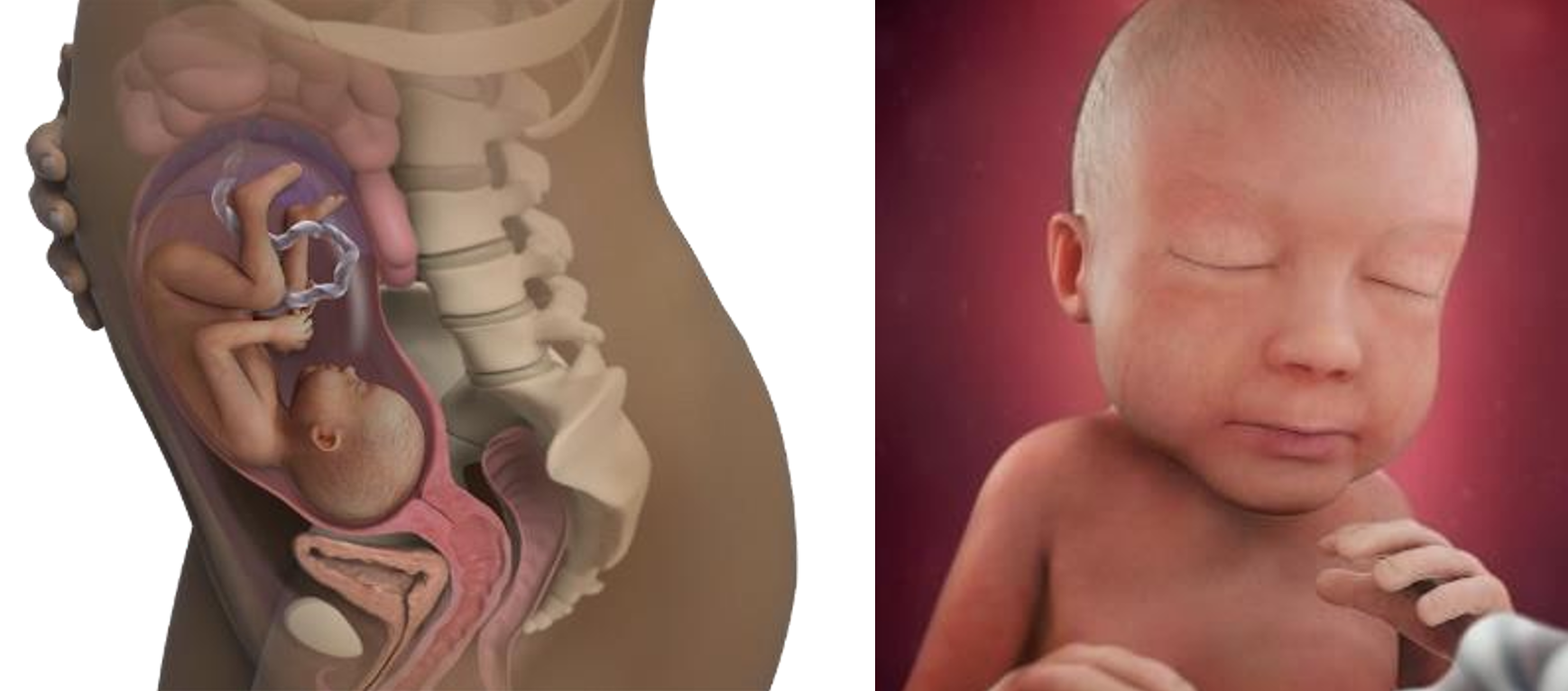
Your baby's brain is getting bigger and becoming more complex all the time. In fact, more than half of the energy your baby consumes at this stage is going towards growing their grey matter.
In your baby's mind, new connections are forming at incredible speeds. They'll have billions of neurons to help them learn and develop by the time they're born. Their hearing has improved to the point where they can now hear your heartbeat and even your voice. They'll be able to identify it from the moment they're born.
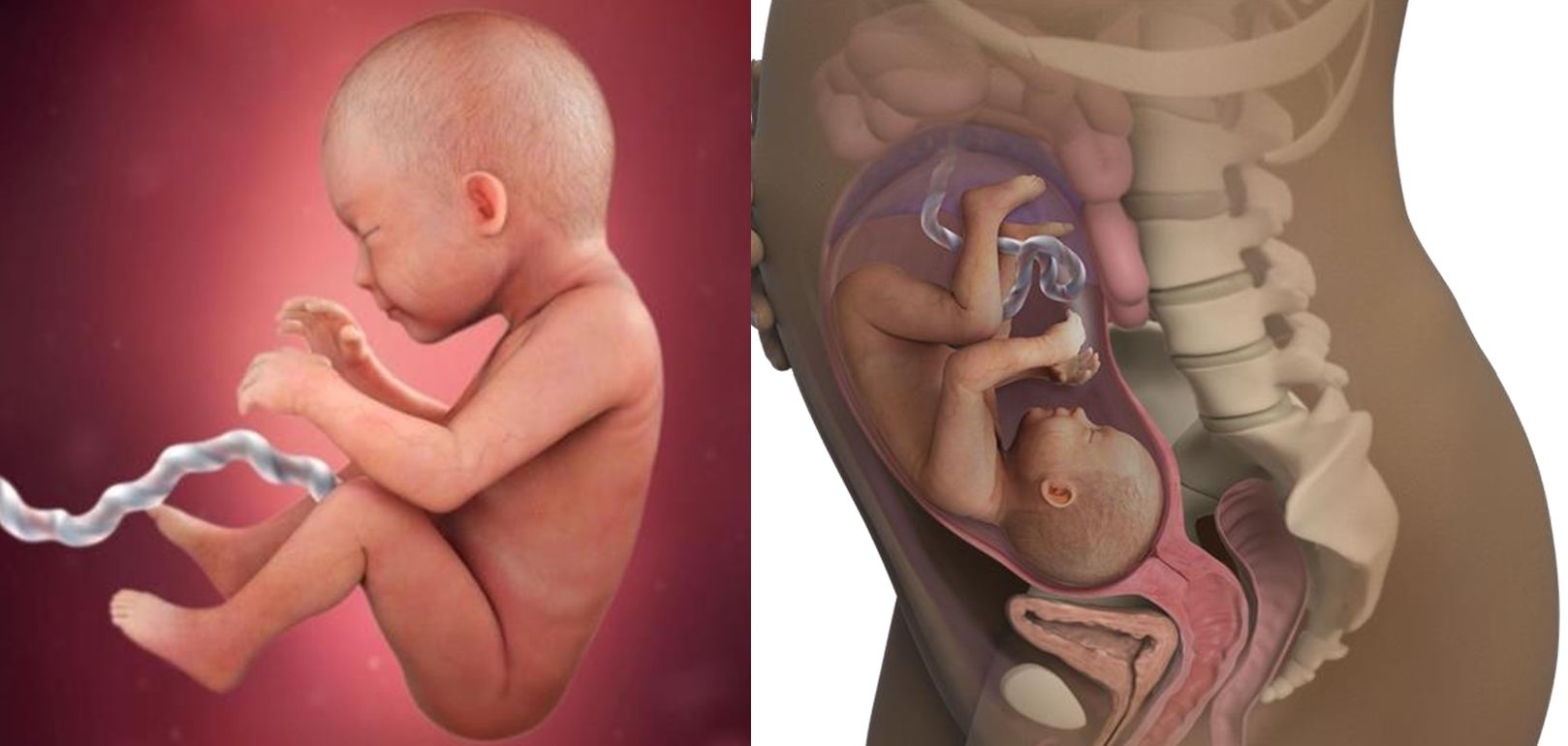
You may be surprised to learn that your baby can already see. Although they don't have much of a view, their eyes are developed enough to detect light and dark, and they can open and close their eyes.
If you shine a bright light on your bump around now, you may notice your baby moving in response. It's a sweet way to connect with your baby while also reminding you and your partne that there's a real person inside!
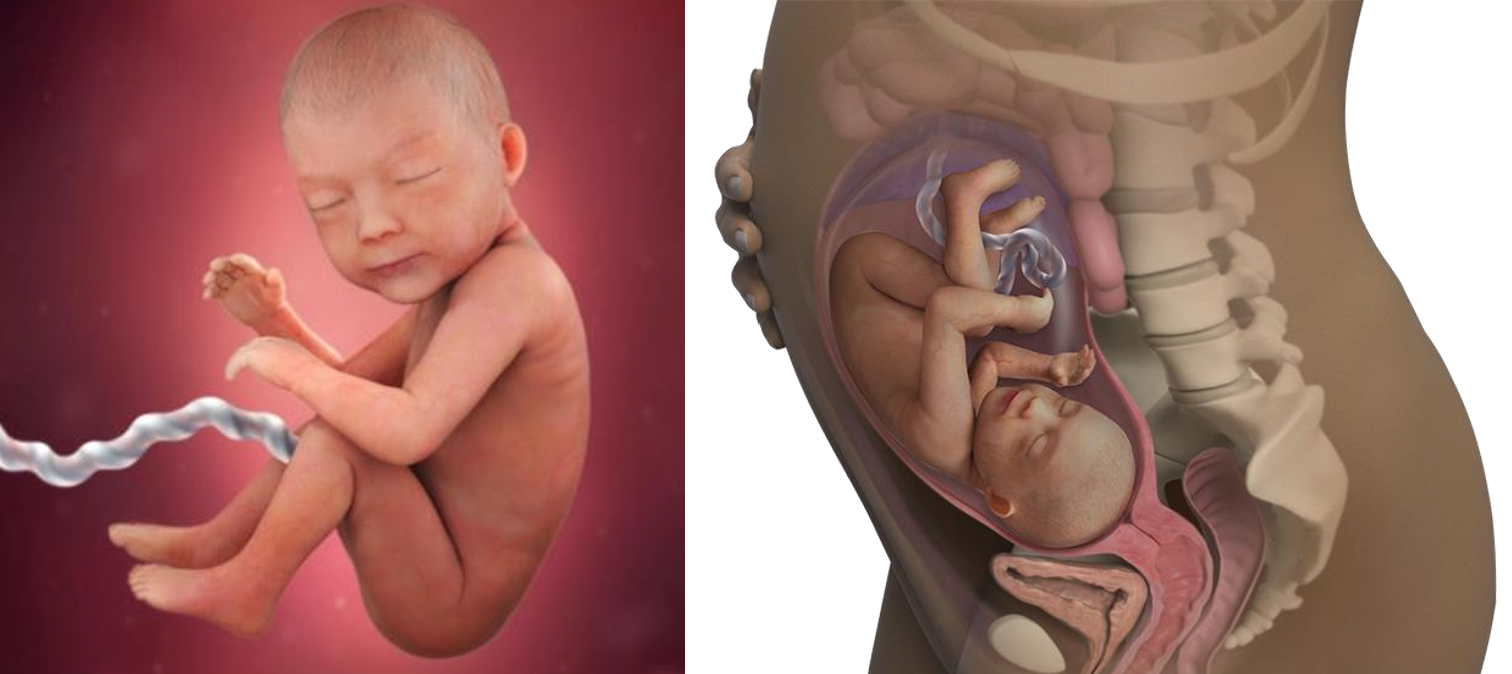
Your baby is gaining weight all the time, looking more like a newborn every day. Because of their increased size, they have less room to maneuver, so their movements may begin to feel different in the coming weeks. You should still be able to feel them wriggling, squirming, and kicking as much as before.
If your baby's movements have changed, such as if they're moving less or more than usual, call your health care professional right away. These changes could indicate that your baby is ill, so it's always a good idea to get things checked out just to be safe.
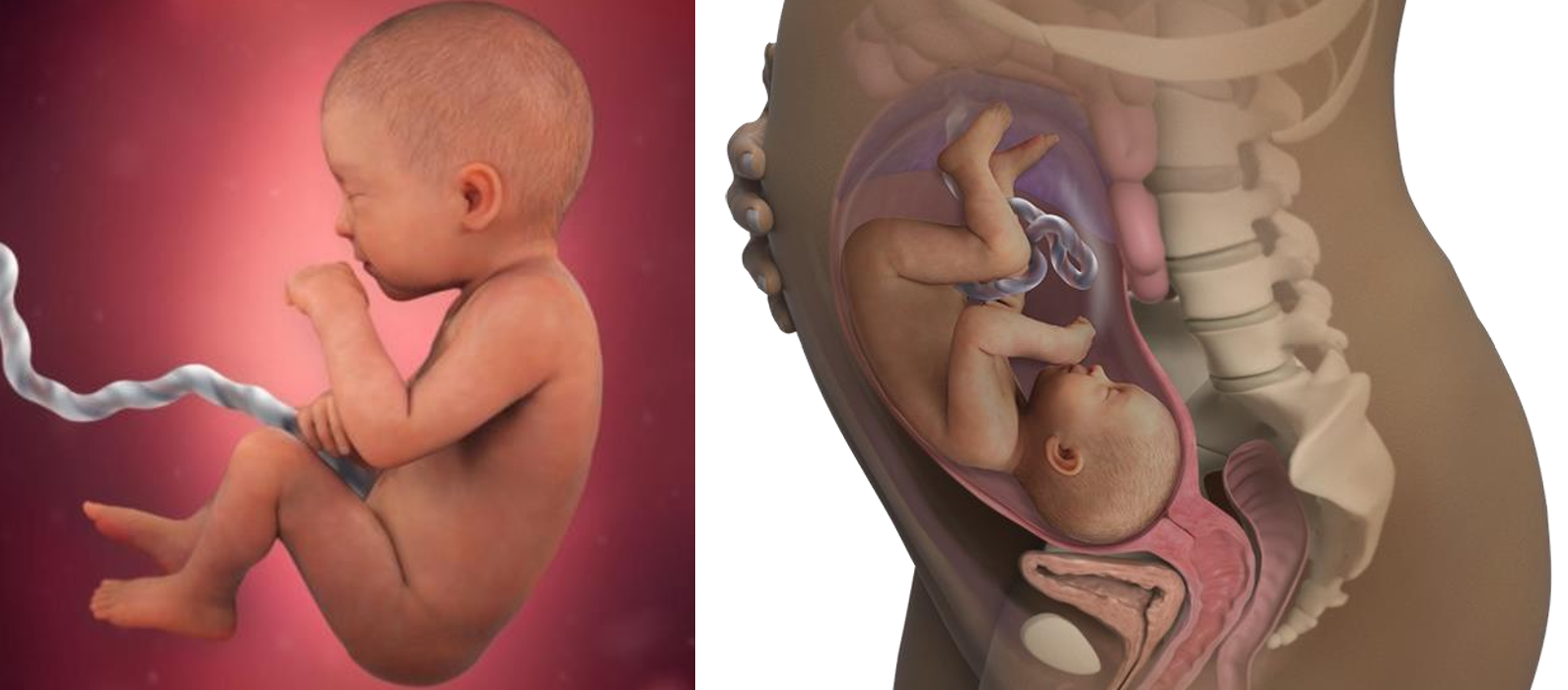
Although your baby still has some growing to do, they may be preparing for birth by putting themselves in a head-down (cephalic) position. In late pregnancy, this is the best position for your baby because it increases the chances of a straightforward birth.
Don't worry if your baby isn't head-down yet. They still have time, and most babies will be in this position before labor begins.
If you give birth early, your baby has a good chance of surviving. All of their major organs are in place; they just need to mature a little more before venturing out into the world.
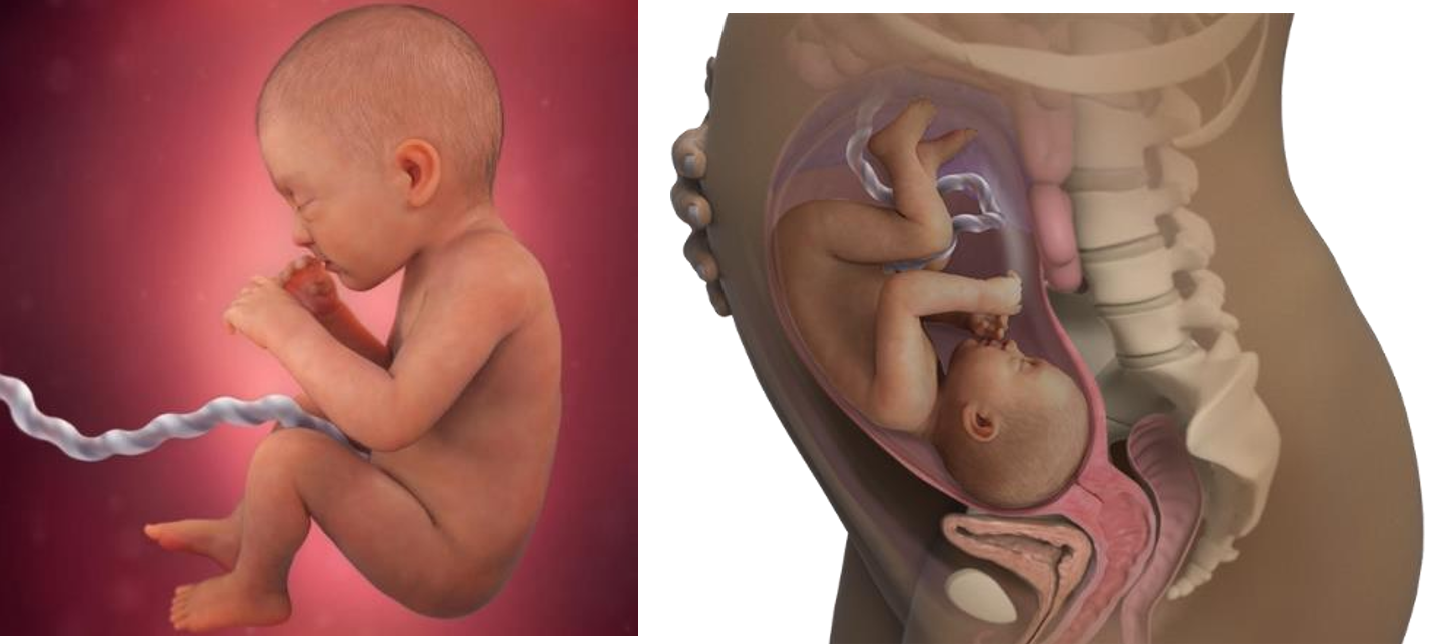
Your baby is gaining weight on a daily basis. Once they've made their way out into the world, the extra fat they're putting on will help to keep them warm (though your cuddles are still required!). Their skin becomes less red and wrinkled as they gain weight, though it is still covered in vernix, a white, greasy substance that protects them and aids in their passage through the birth canal.
The bones of your baby's skull are still soft and pliable, and they haven't yet fused into one solid piece. Because the bones in their skull can overlap slightly as you push them out, this makes it easier for you to give birth.
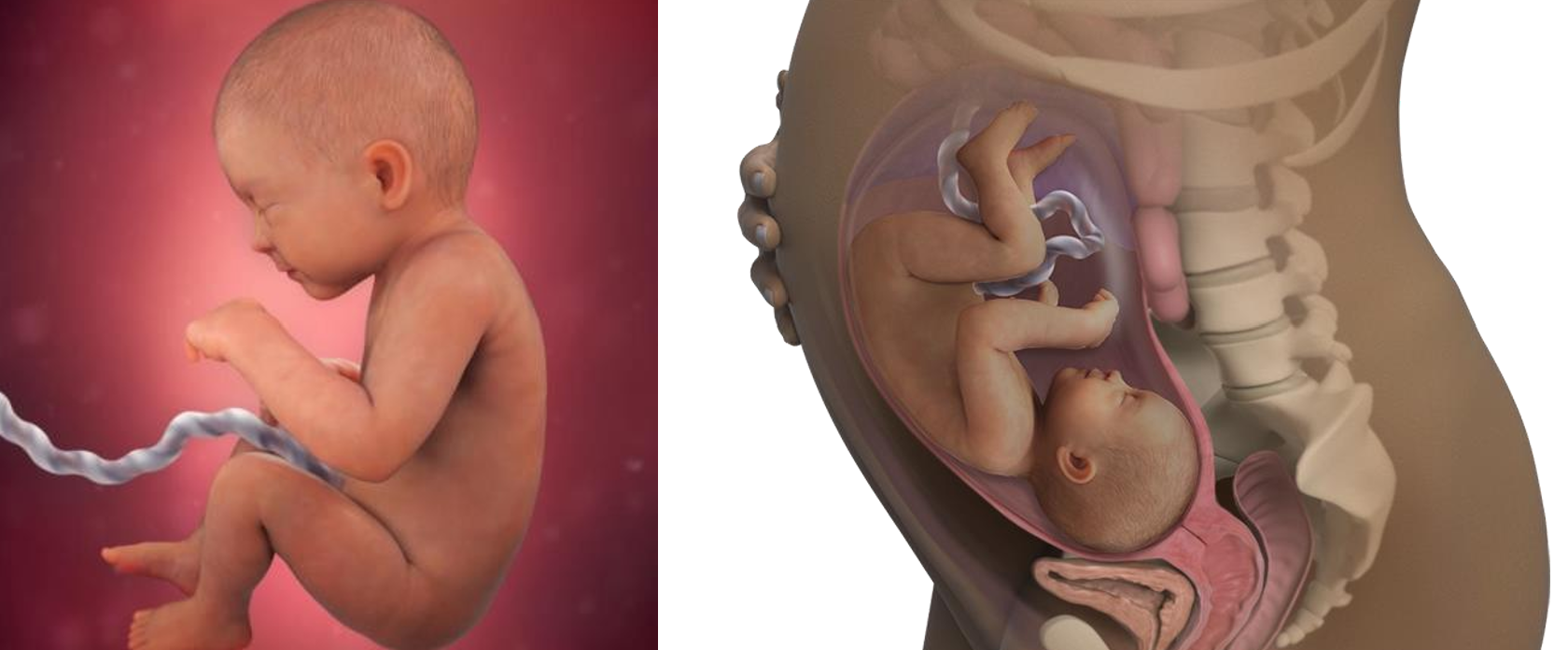
Your baby is gaining weight on a daily basis. Once they've made their way out into the If you're concerned about going into labor too soon, know that the vast majority of babies born between 34 and 36 weeks are perfectly healthy. Your baby's lungs are still developing, but any breathing issues should be easily treated by now.
Your baby recognizes your voice at this point, and may even recognize music you listen to on a regular basis. The theme song to a TV show that their parents watched a lot during pregnancy was found to calm babies in one study! From the moment they are born, your baby will enjoy listening to you talk and read to them.
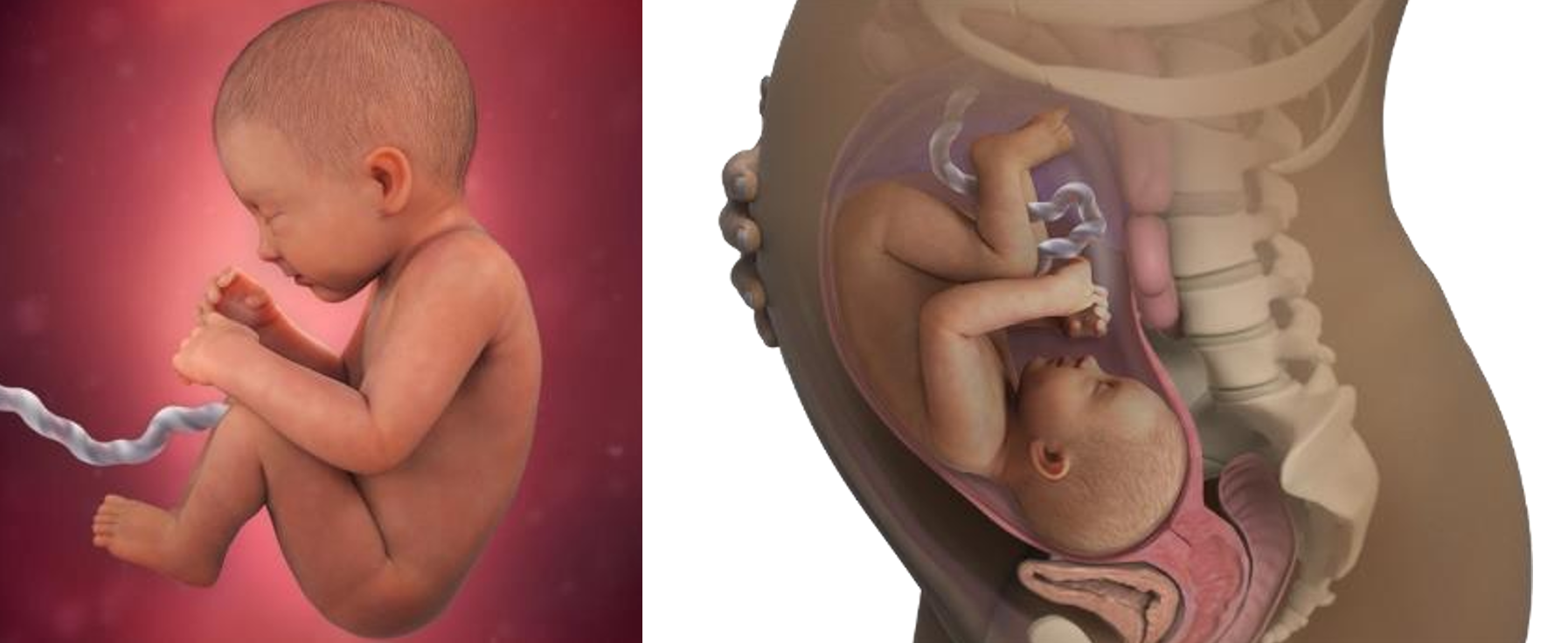
When you look at your bump, you may notice that you can actually see your baby's movements. Seeing those little limbs push out, or watching your belly jump around when you get the hiccups, can be quite surreal!
Your baby will gain nearly 30 grams per day for the next few weeks as he or she continues to grow. The amniotic fluid that surrounds them will gradually decrease as they do so.
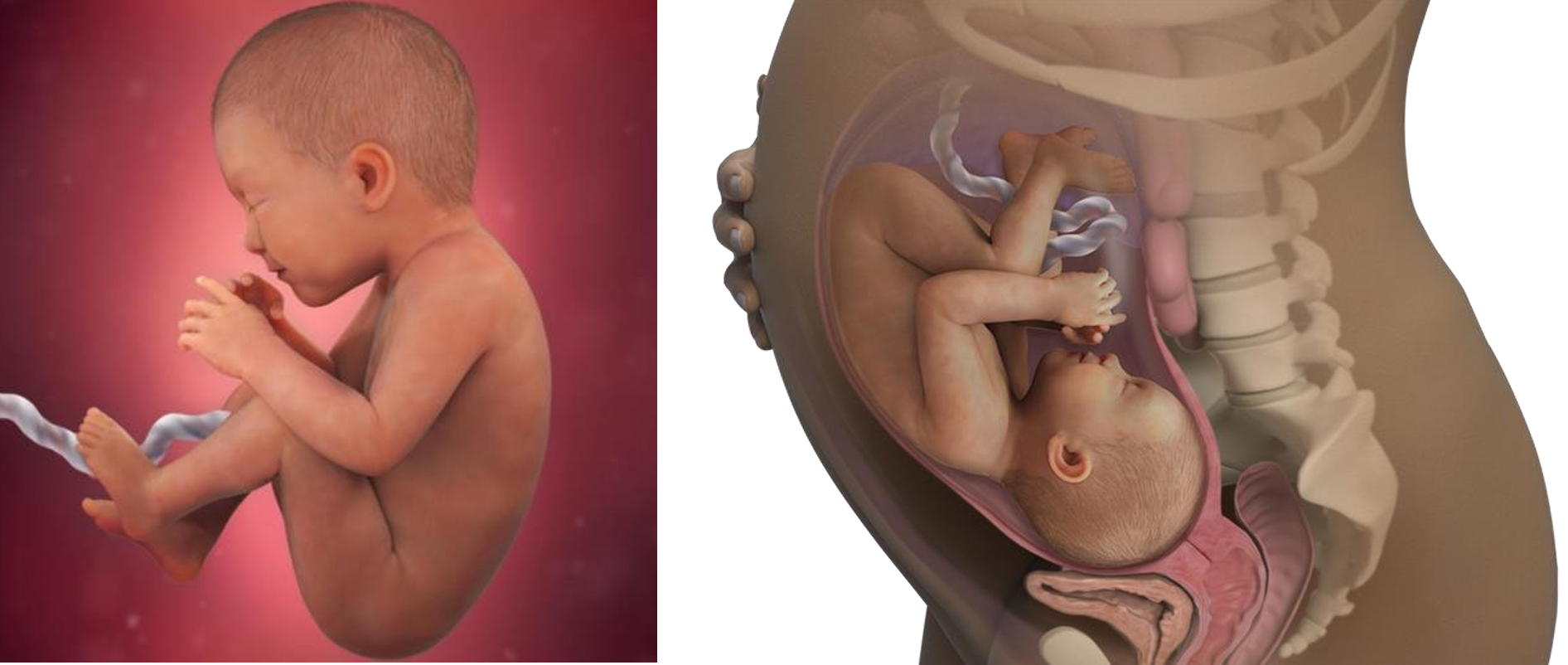
It's possible that you'll meet your baby any day now. Your baby is starting to shed the fine hair (lanugo) and white, greasy substance (vernix) that have covered their skin during their time in your womb in preparation for their arrival in the world (uterus). After the birth, they may have patches of them – newborns don't always look like they do on TV!
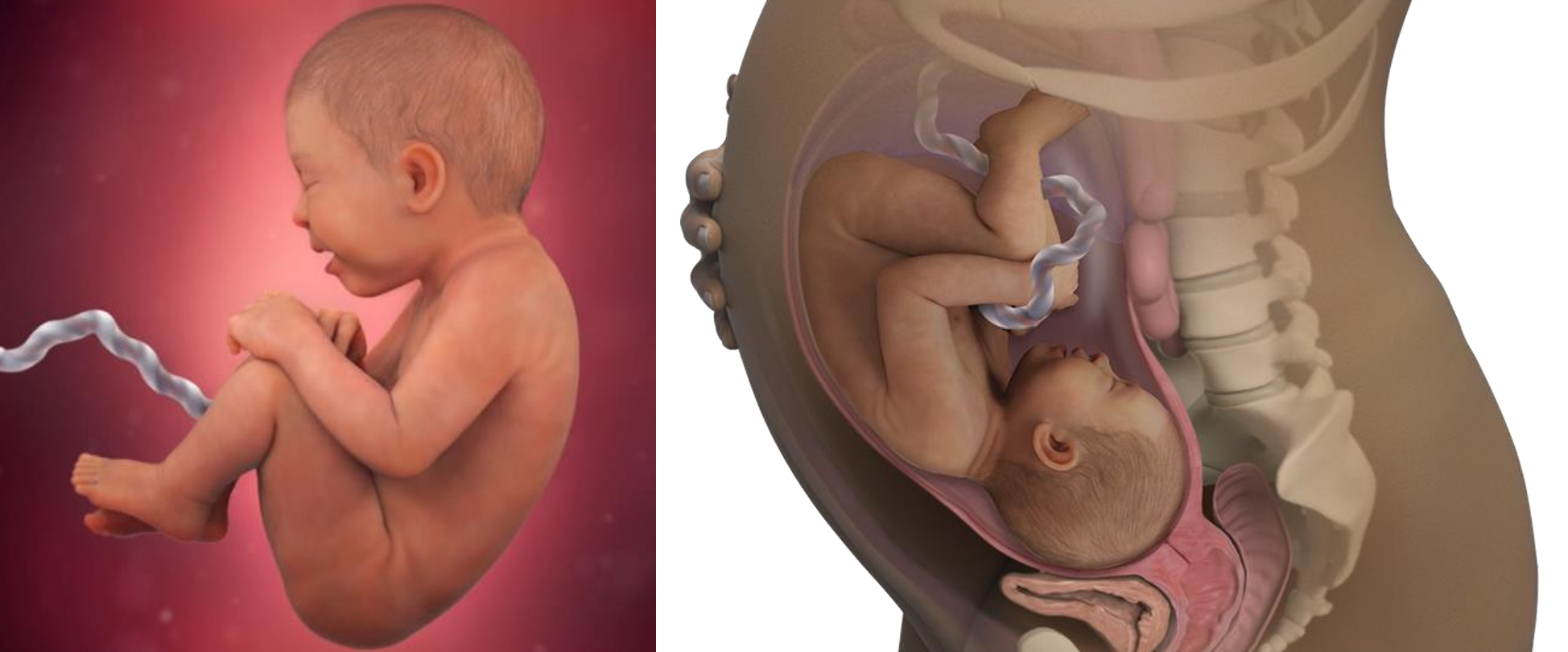
Congratulations! Tour baby is now officially considered full term at 37 weeks, and you're now at term in your pregnancy, even if you won't meet your baby for another few weeks. Premature or pre-term babies are born before 37 weeks, while post-mature or post-term babies are born after 42 weeks.
Your baby's movements may feel a little different now that your pregnancy has reached term as they run out of room, but they should still be wriggling and kicking as often as before. To be safe, contact your midwife right away if they don't seem to be moving as much as usual. Your baby is busy getting ready for life in the big, wide world. Their digestive system is still growing, and they're even practicing little frowns and pouts to strengthen their facial muscles.
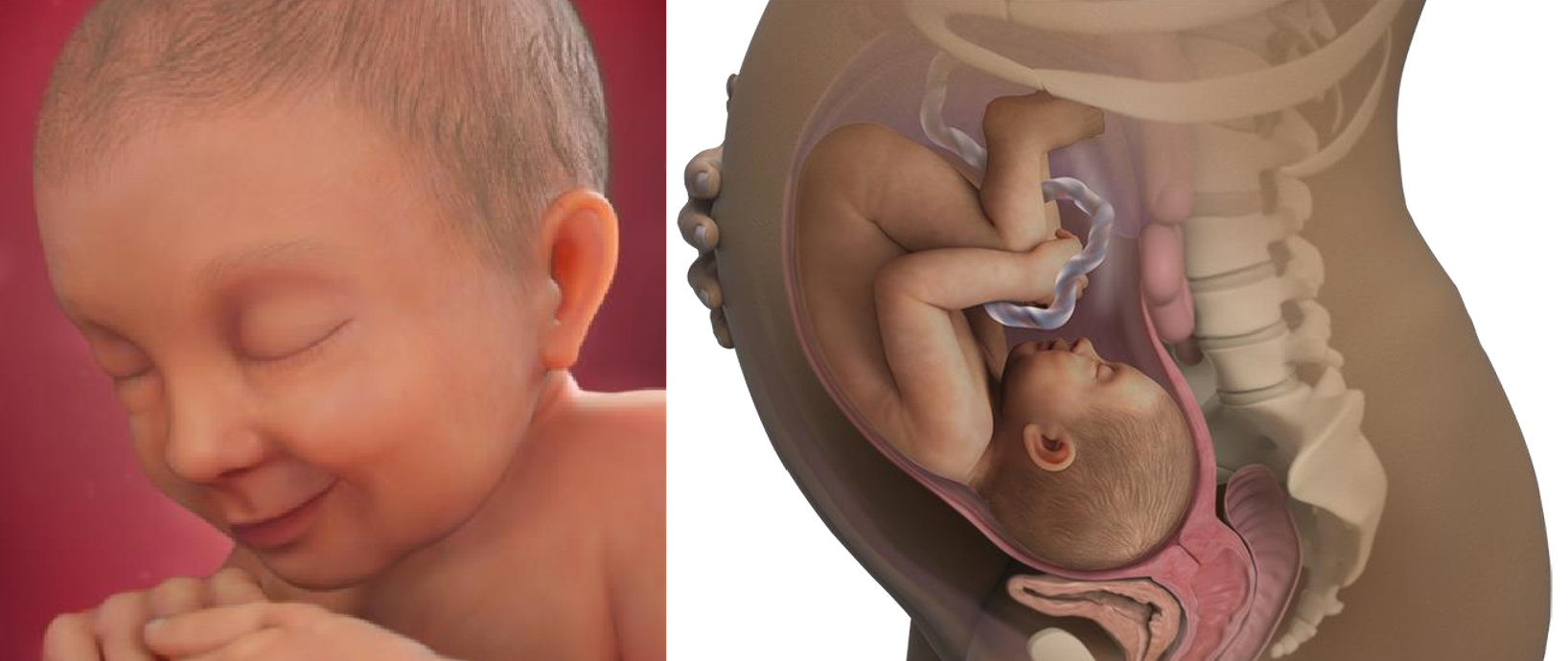
Your baby is all set to meet the world, and you'll be gazing into those adorable eyes in no time. Your baby is still forming a layer of fat that will help them regulate their body temperature after birth. All of your baby's organs are fully developed, with the exception of their lungs, which will be the last to mature.
The lanugo, a white, greasy substance that has protected your baby's skin in your womb (uterus), is almost completely gone. Even if your baby is perfectly formed, their eye color is still developing, and you may notice that it changes during the first few months of their life.
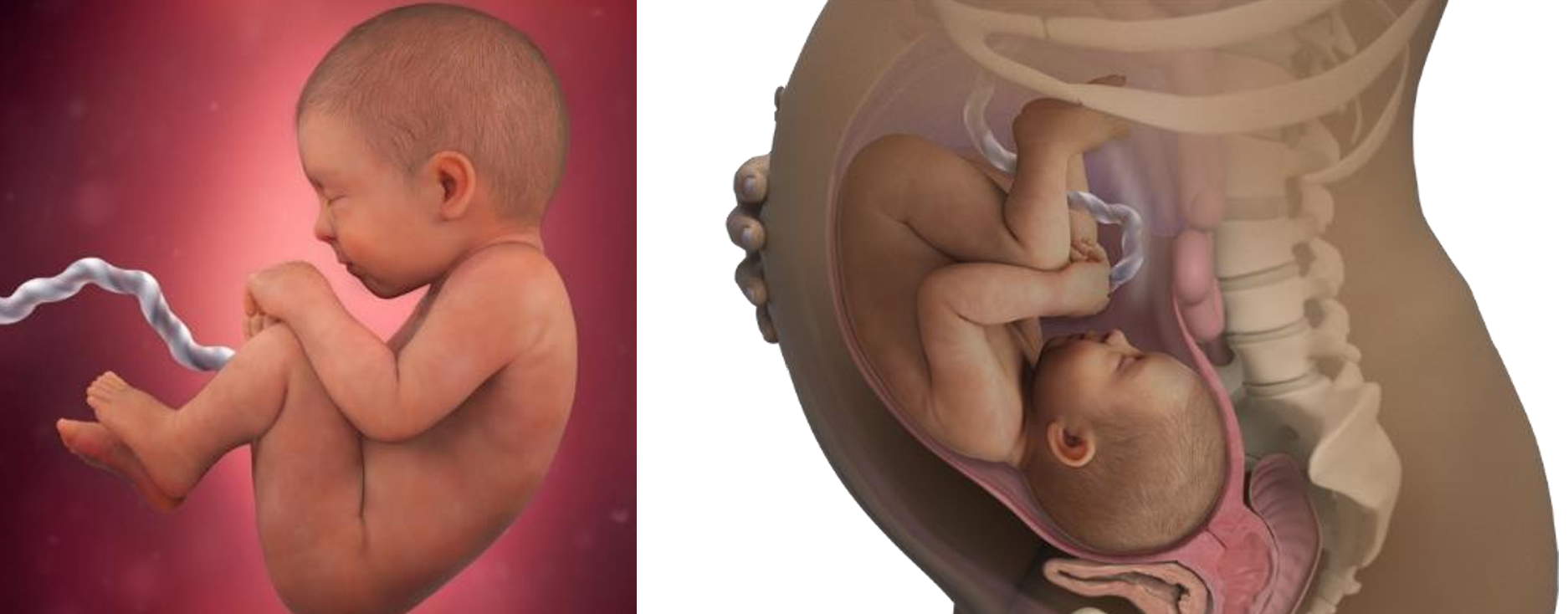
The big day is almost here and it won't be long before you're able to hold your baby. However, if you're still waiting at the end of the week, don't be concerned. Only about 4% of babies are born on their due date, though the majority are born within a week of it.
Your baby's lungs have matured to the point where they're ready to take their first breath after birth. Snuffles and snorts are common in the first few weeks as they adjust to breathing air instead of amniotic fluid.
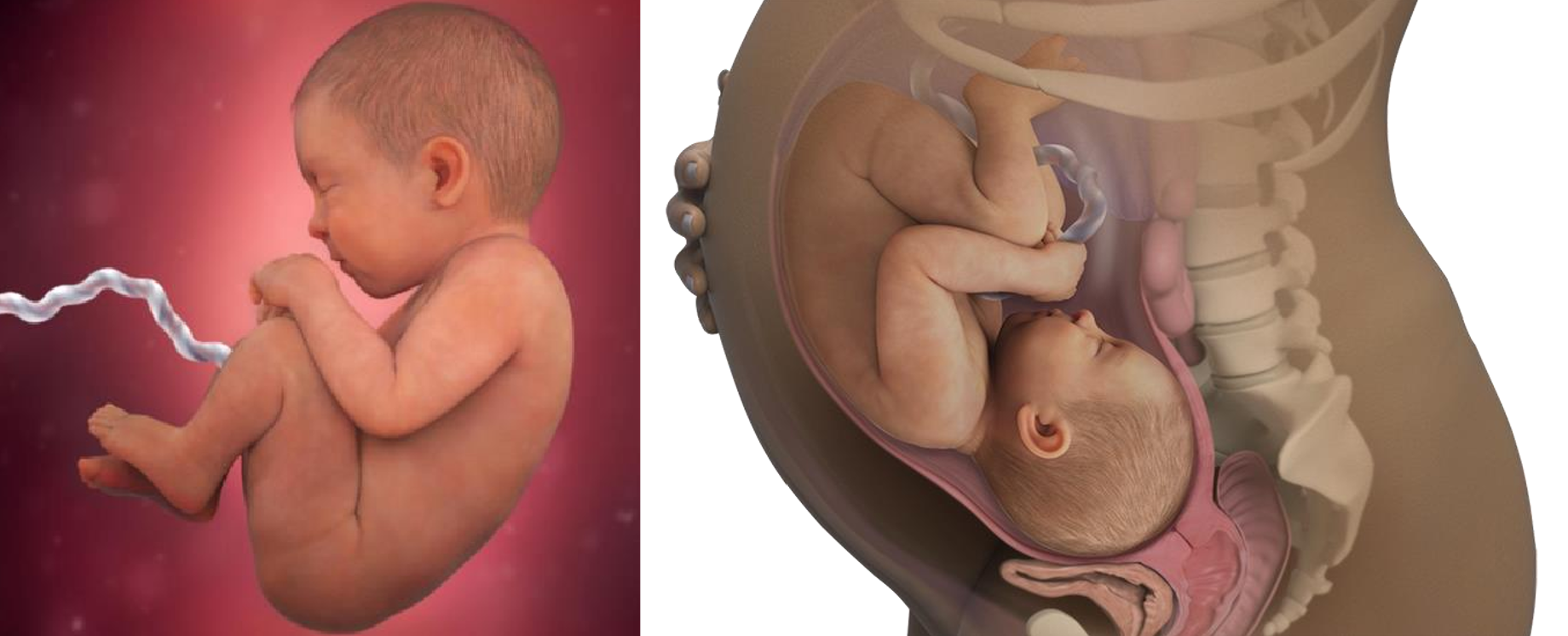
At 40 weeks pregnant, you are at the official end of your pregnancy. You, or actually the placenta, are still providing the antibodies she'll need to fight off infections for the first six months of her life.
If you plan to breastfeed, your milk will provide more antibodies to help your baby's immune system, especially colostrum, a thin, yellowish precursor to breast milk that's high in antibodies and feeds your baby for the first few days after birth.